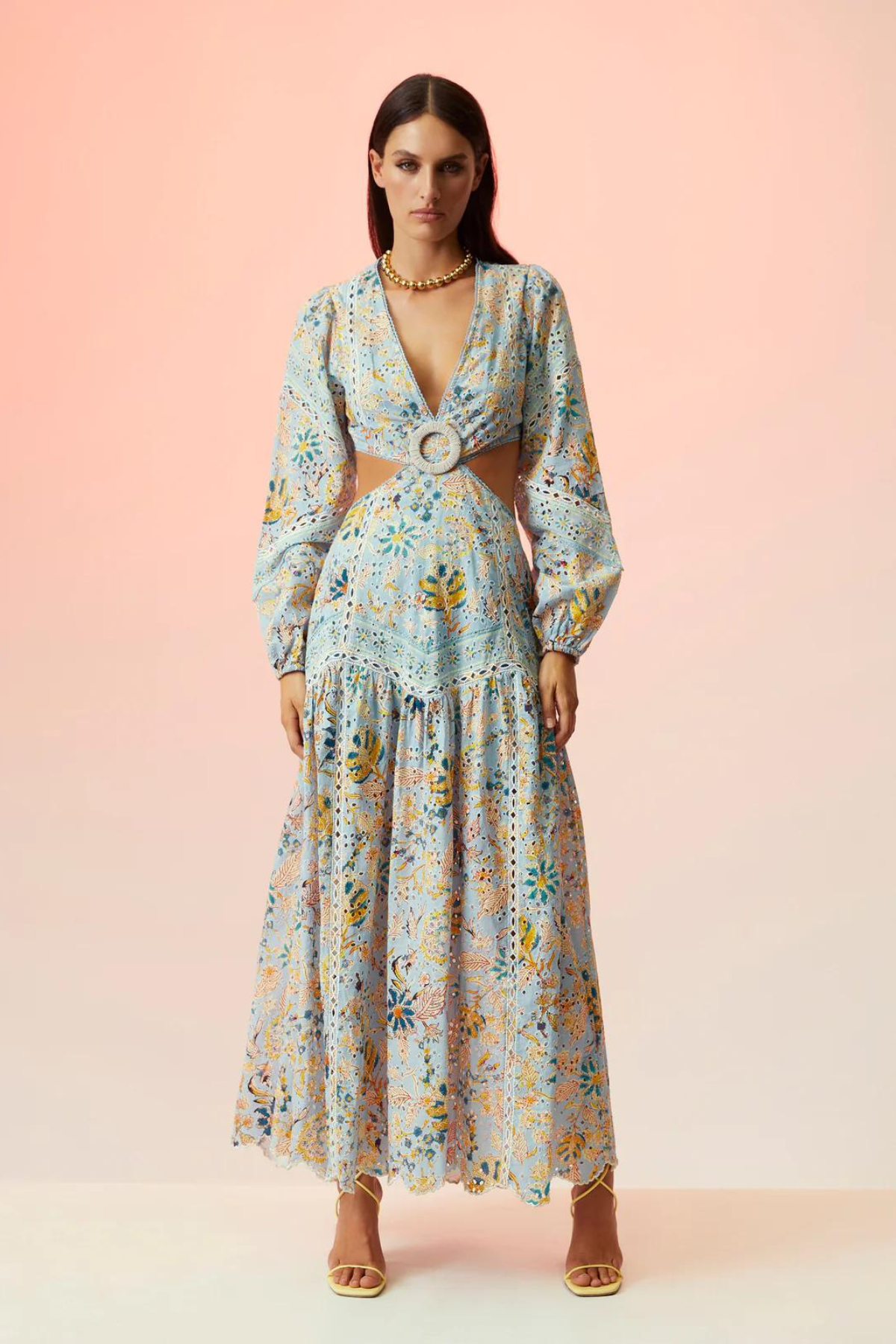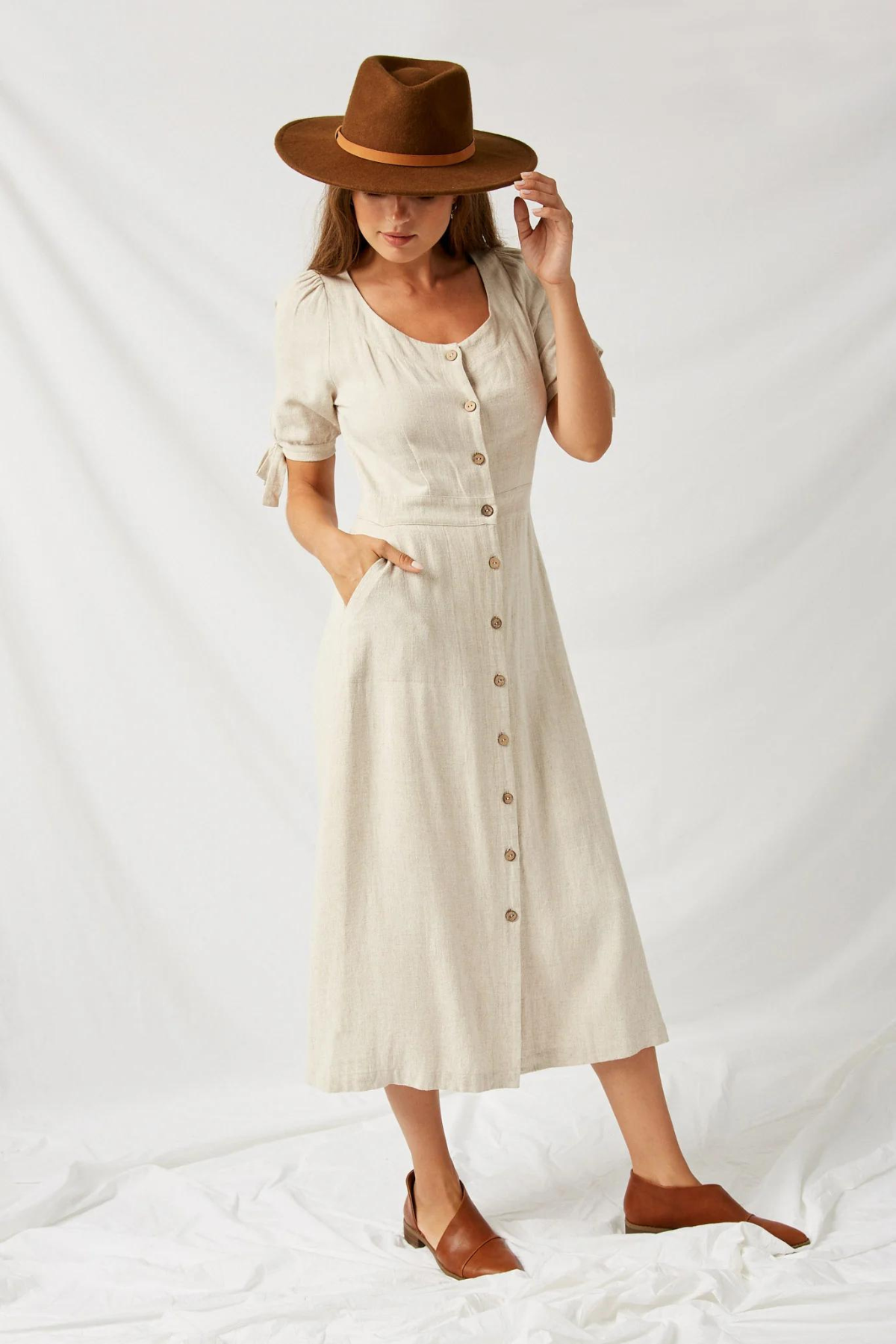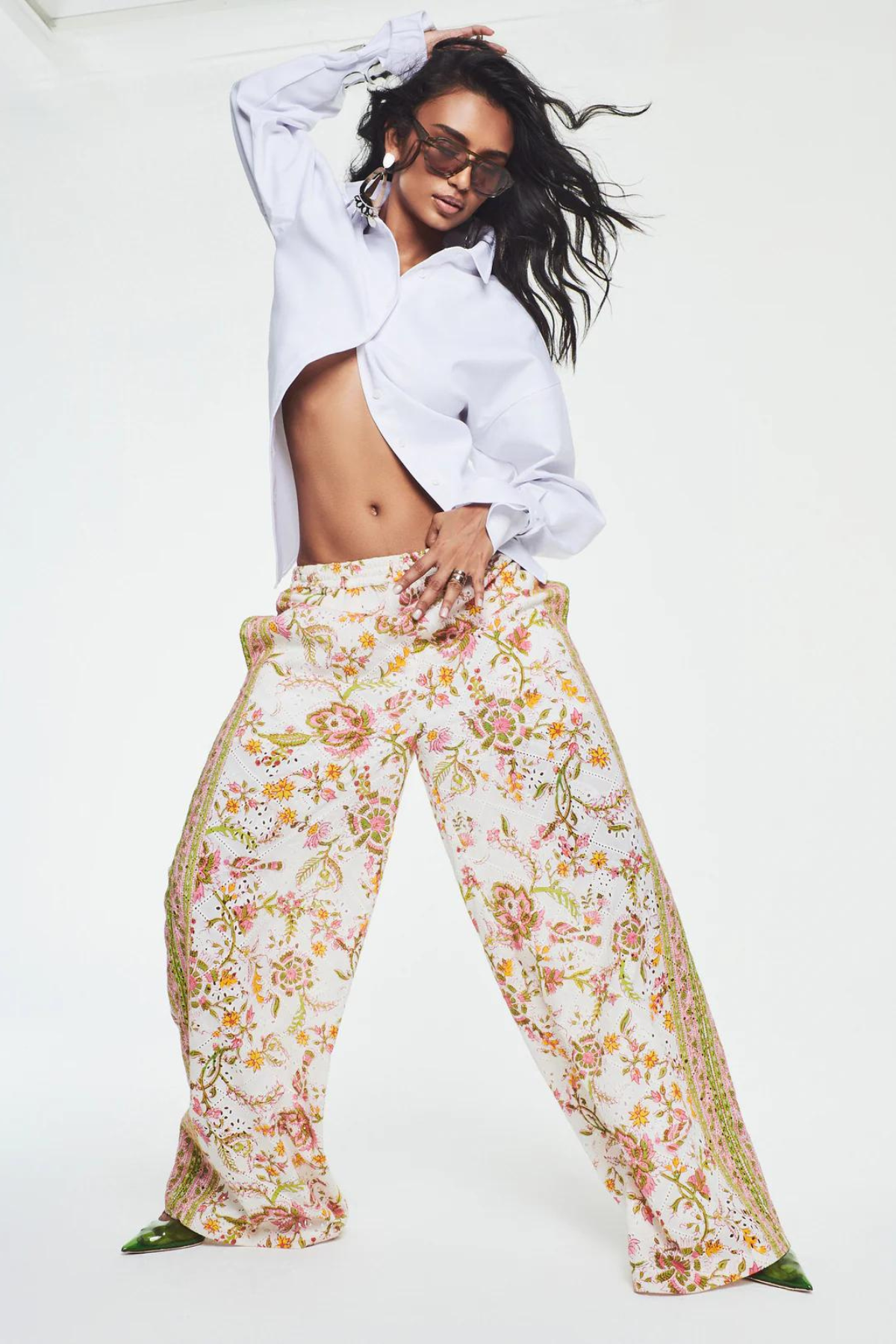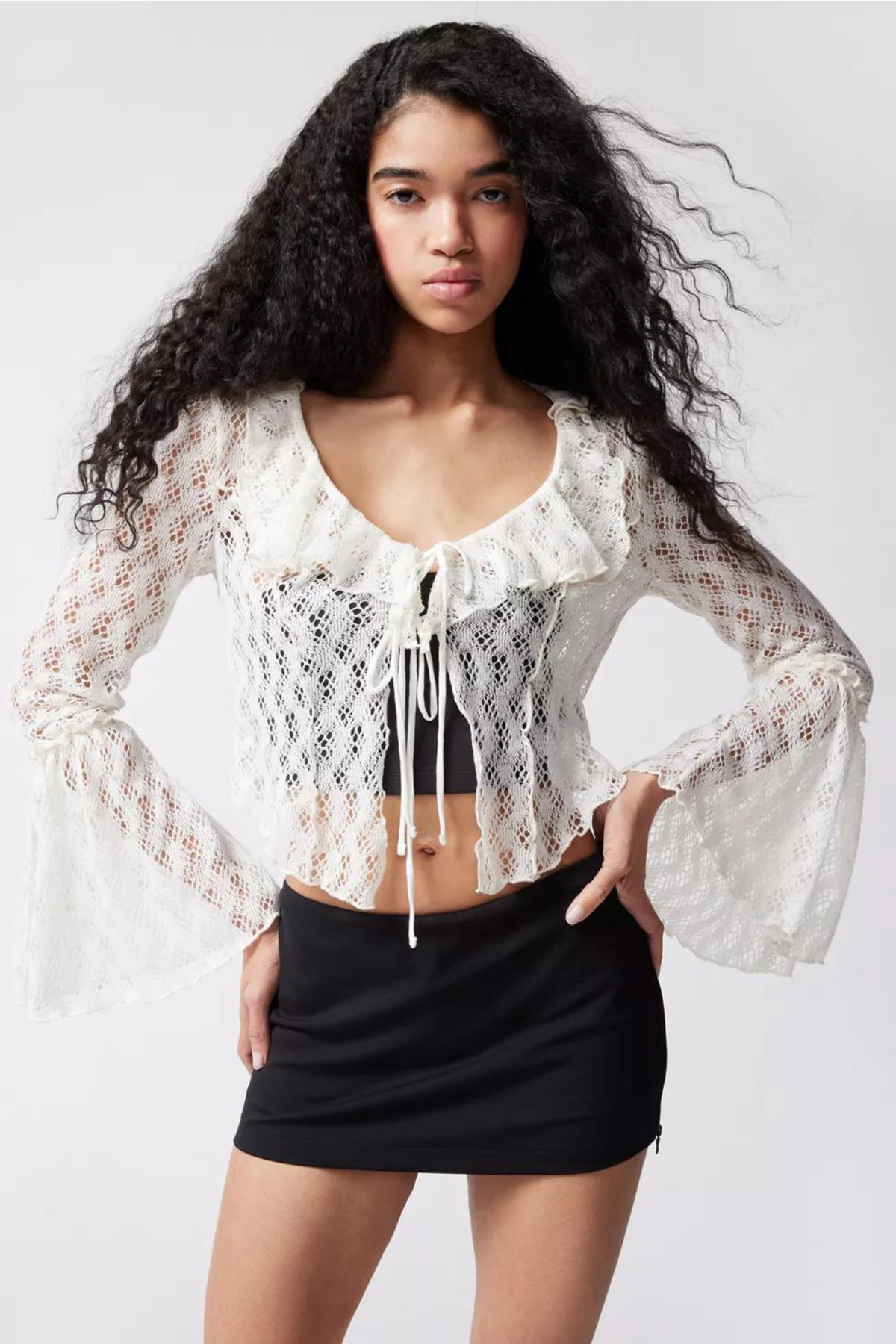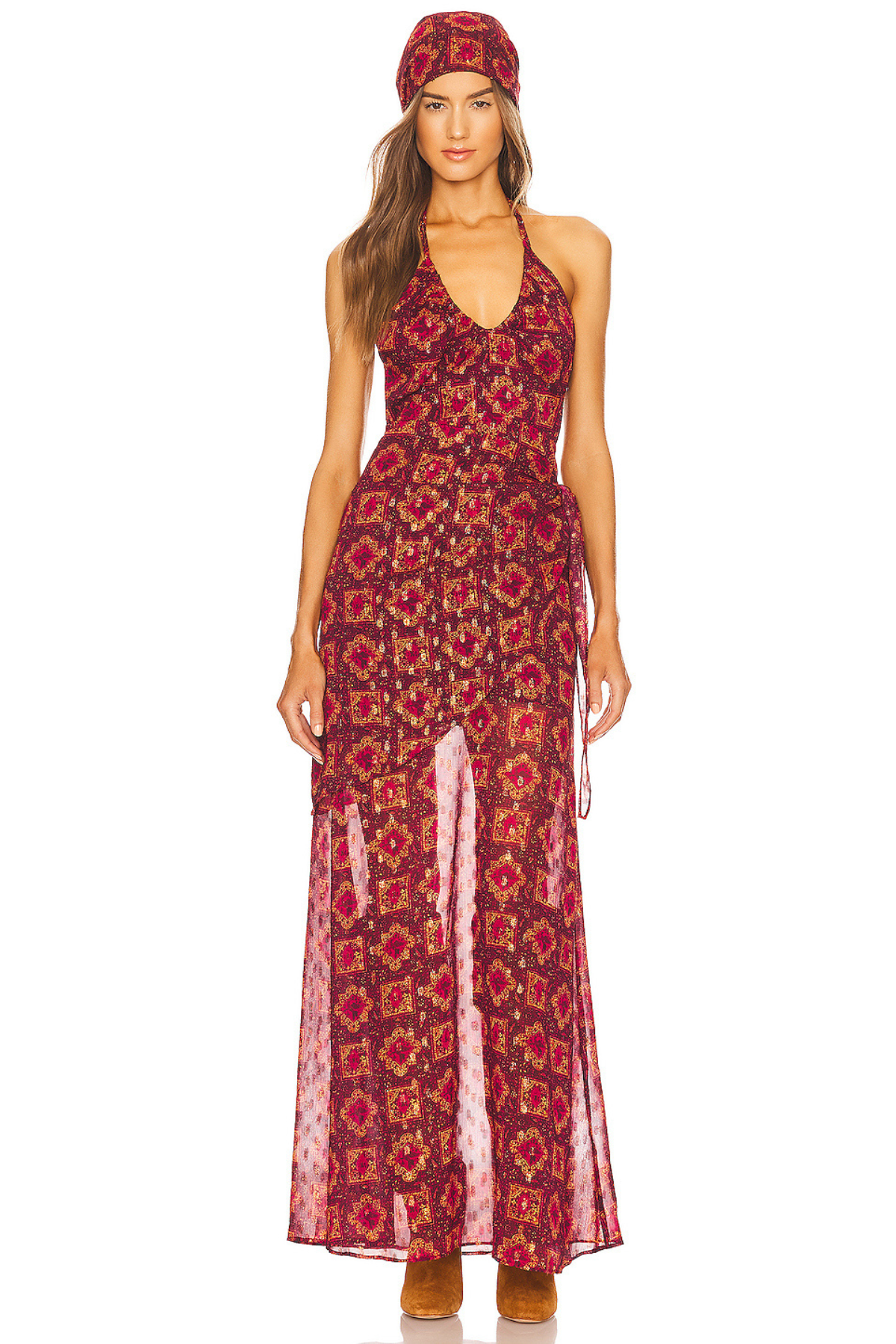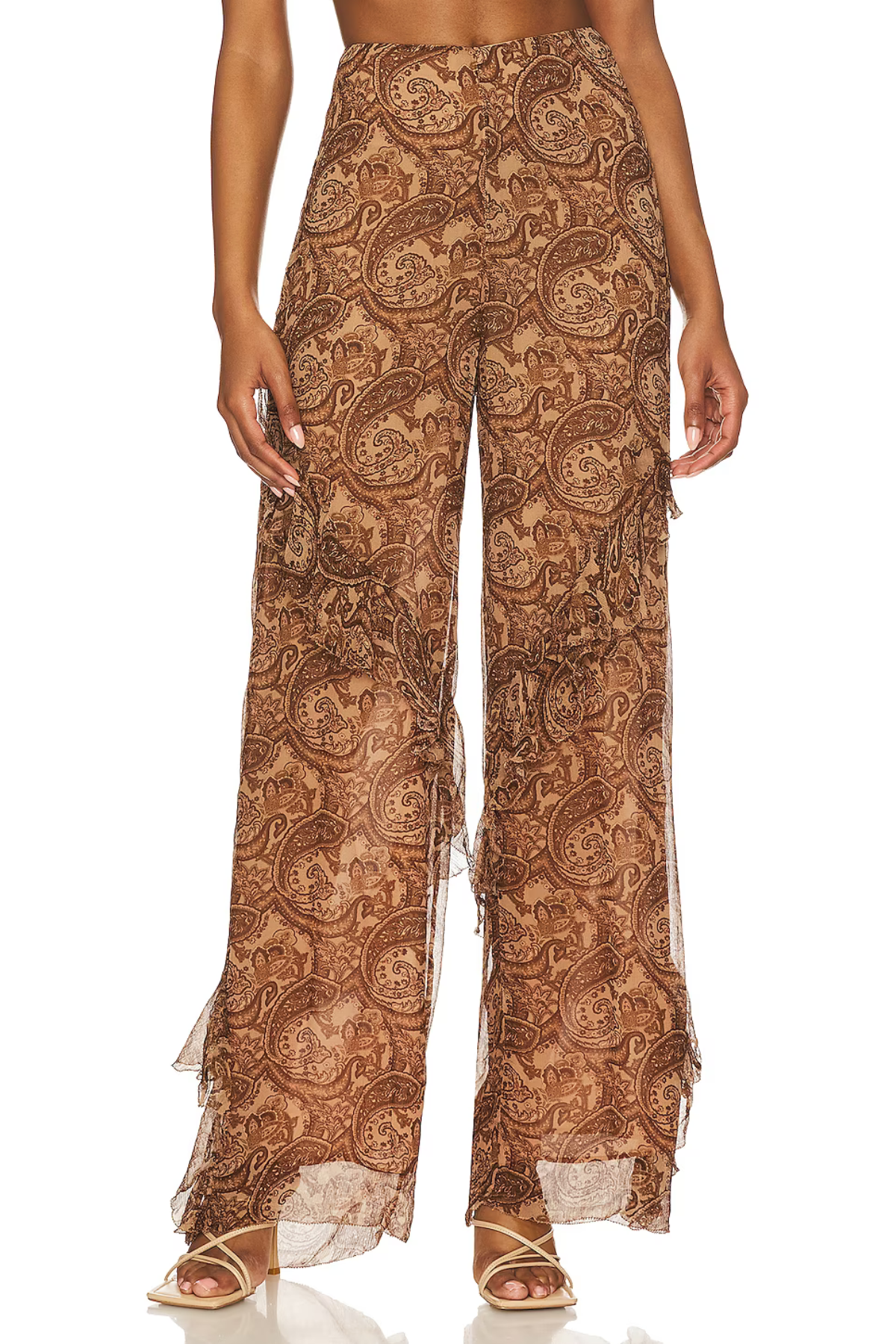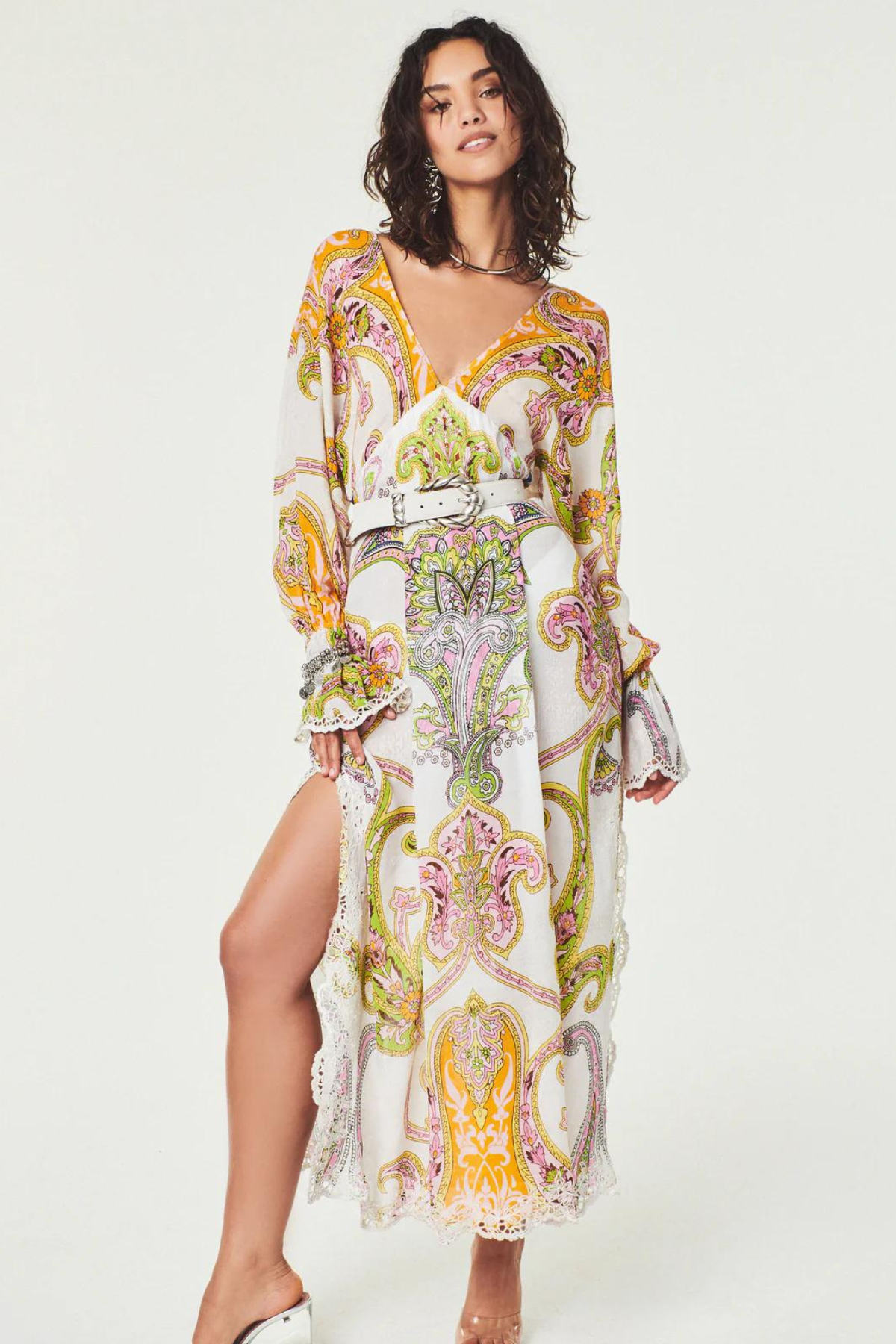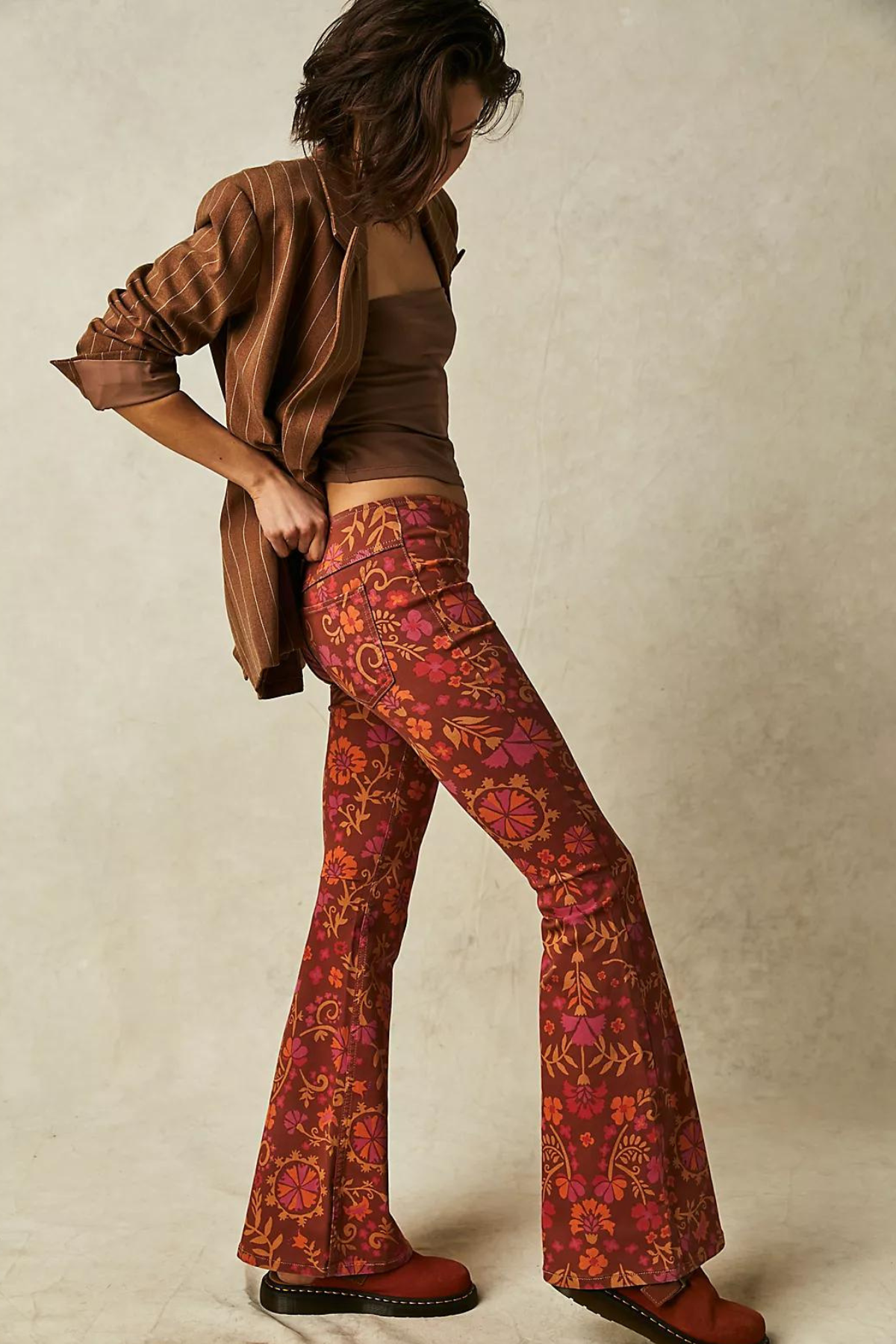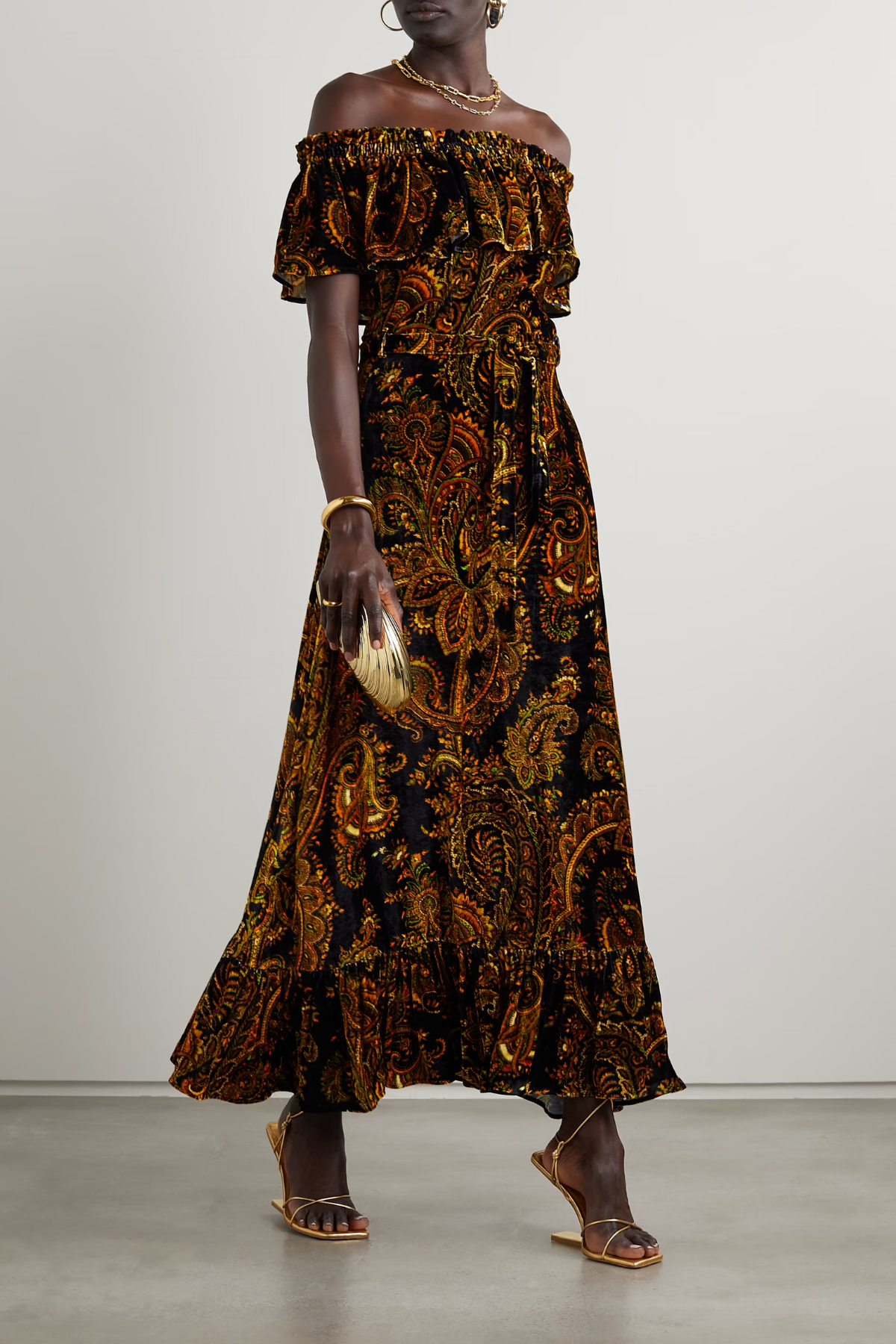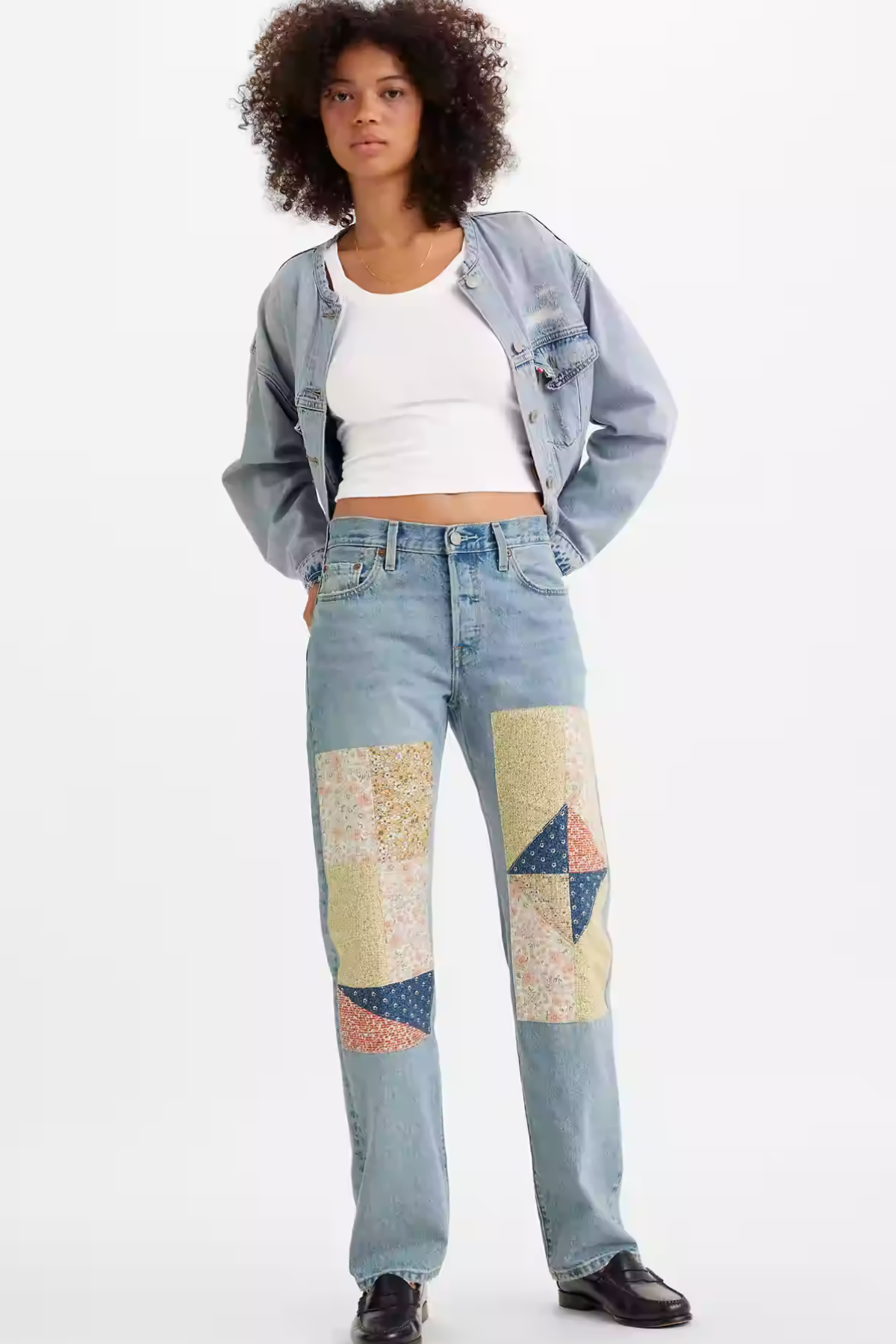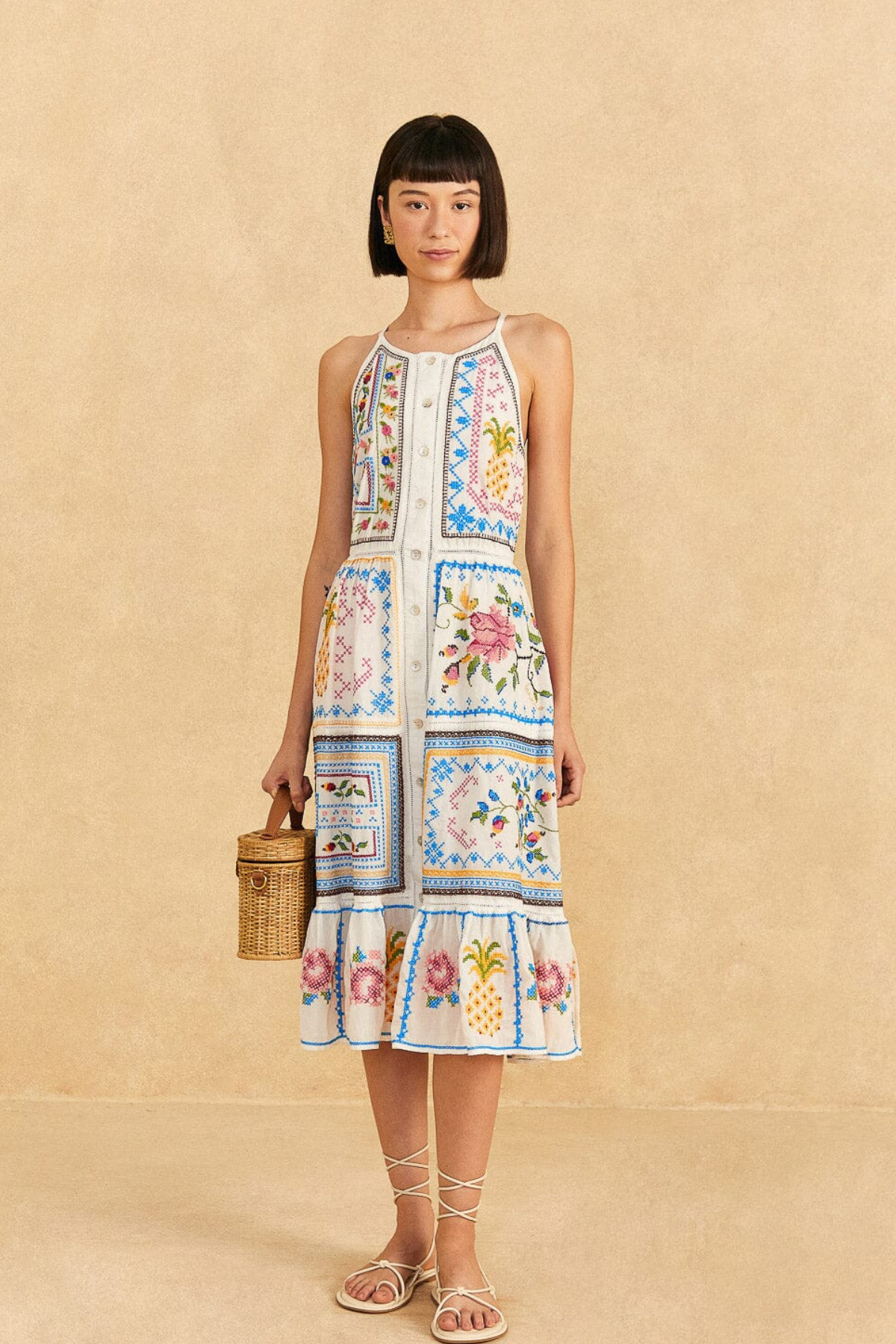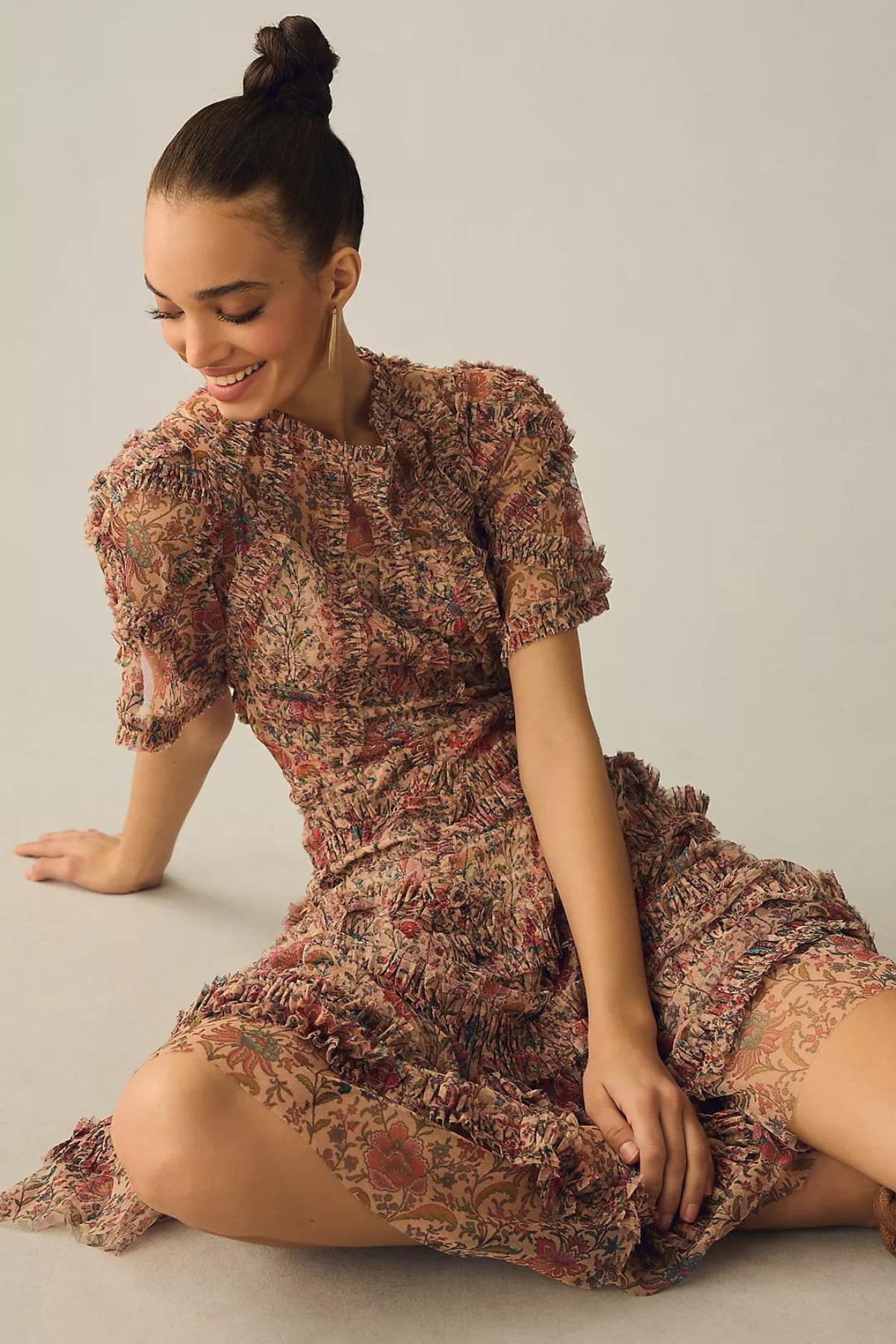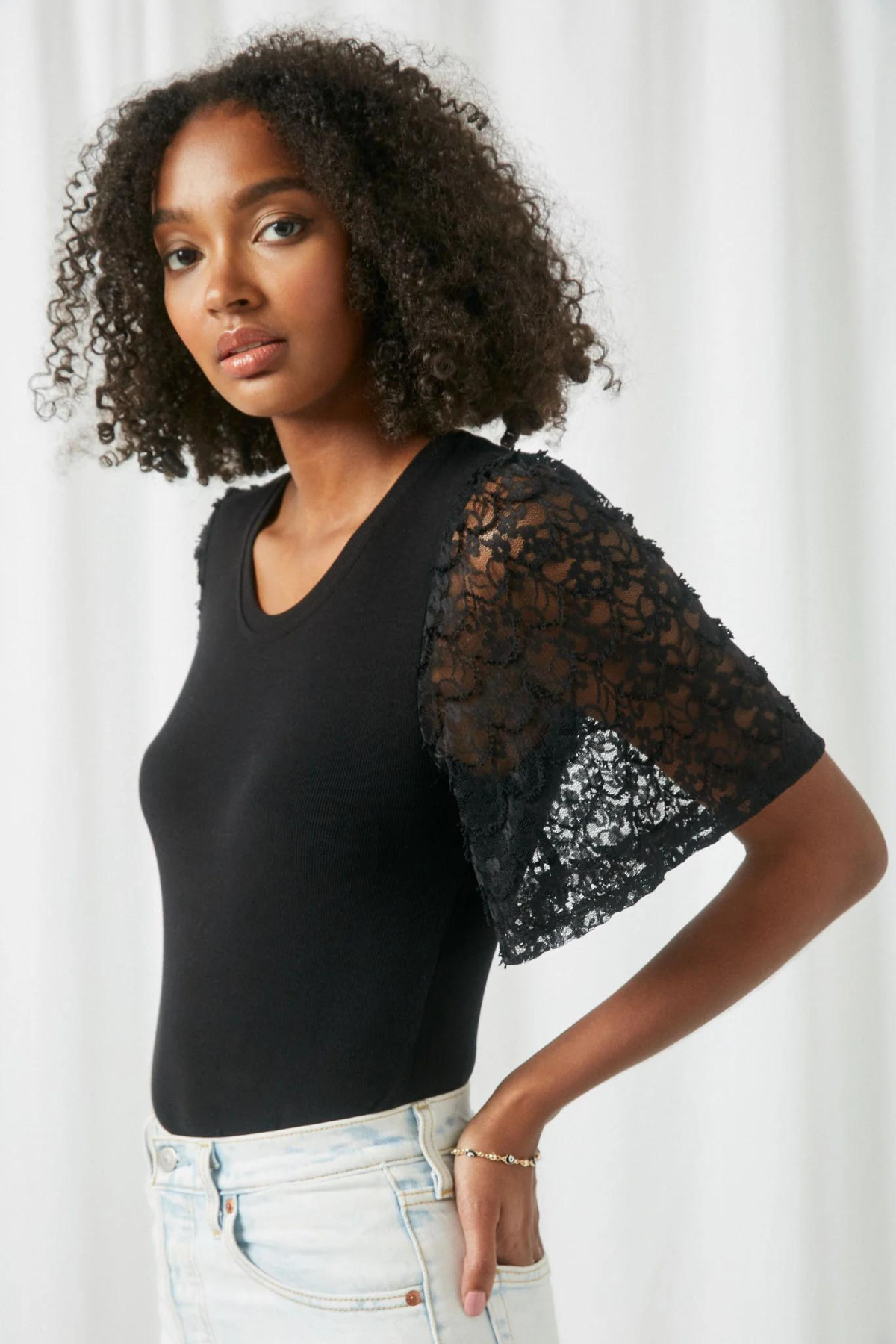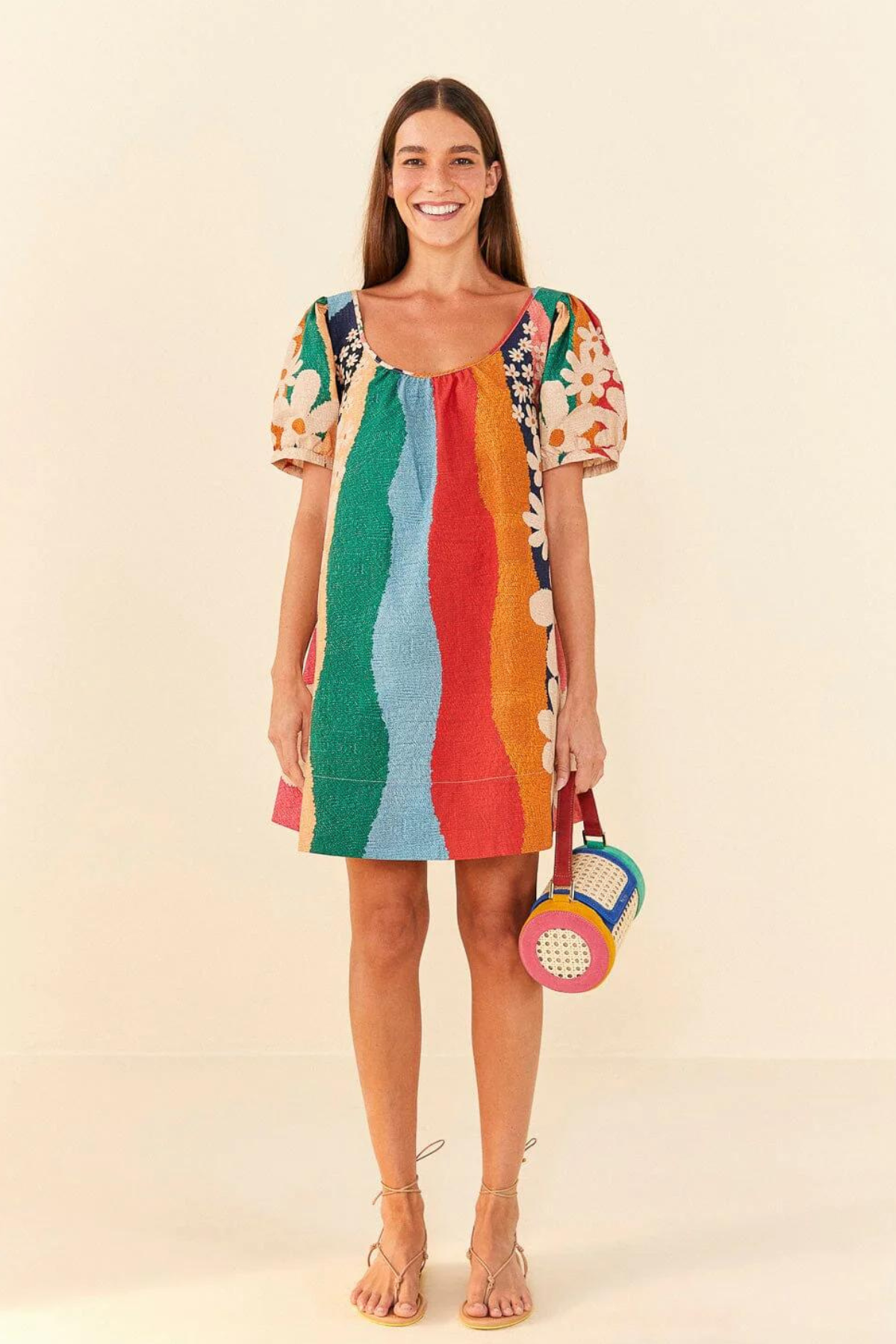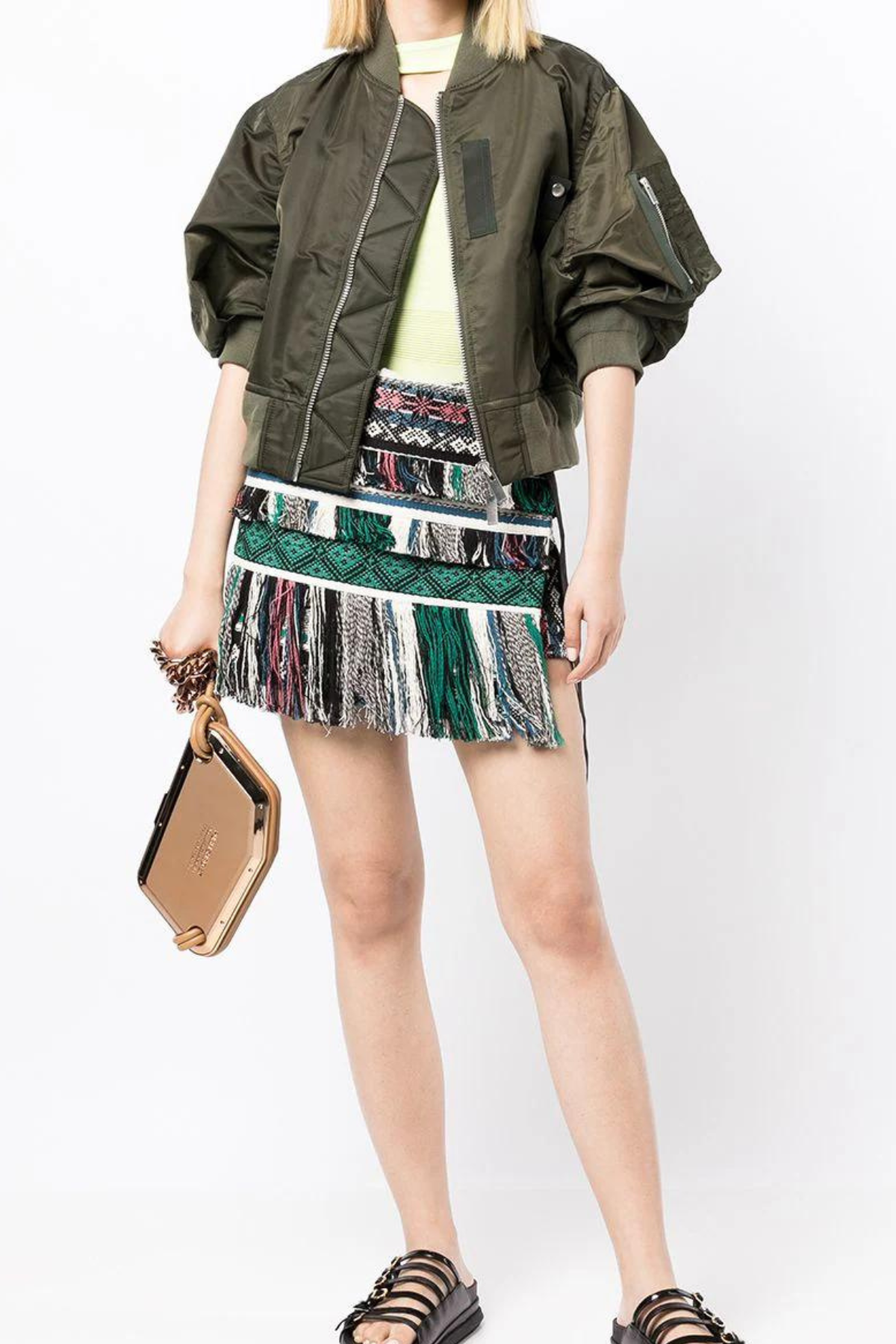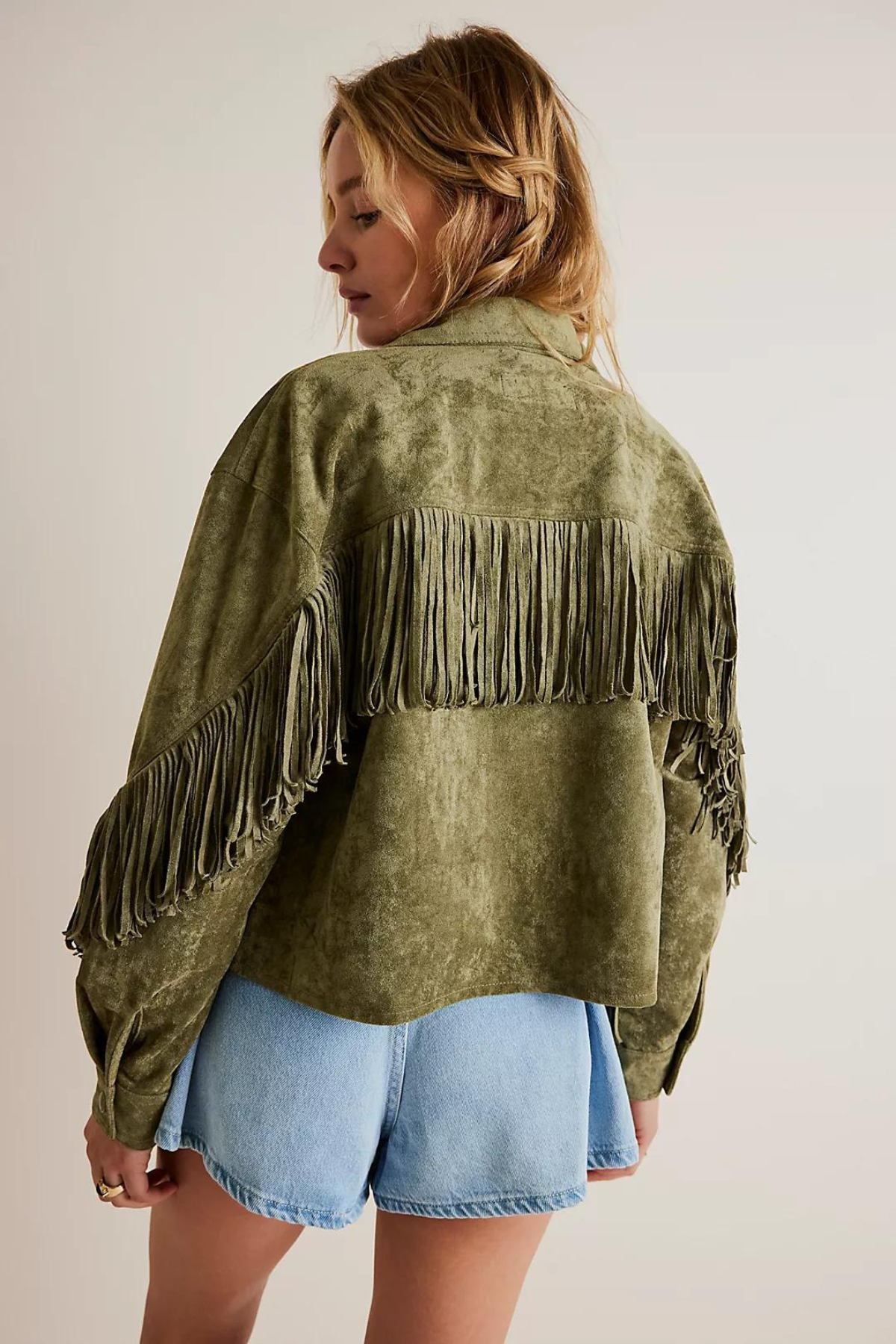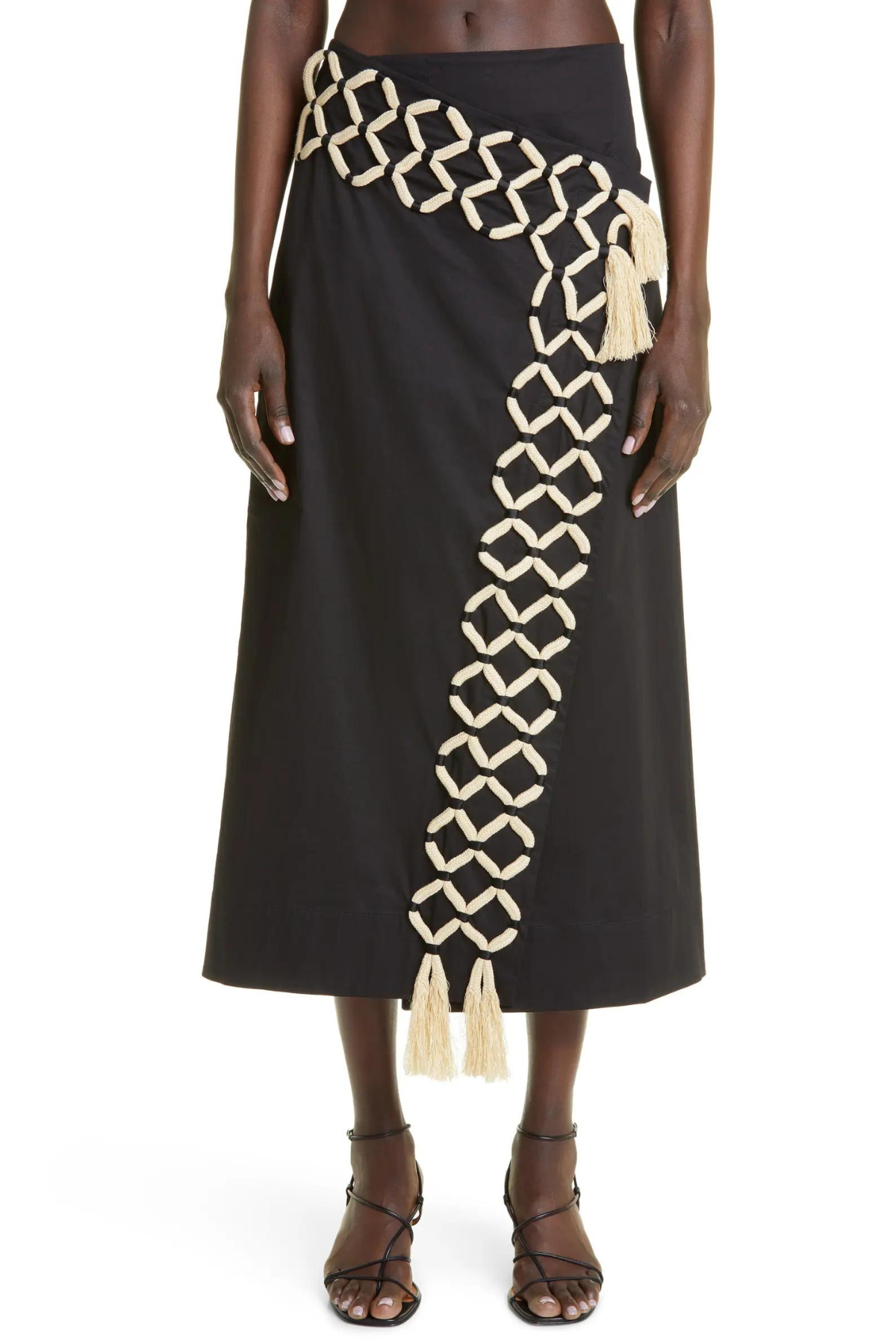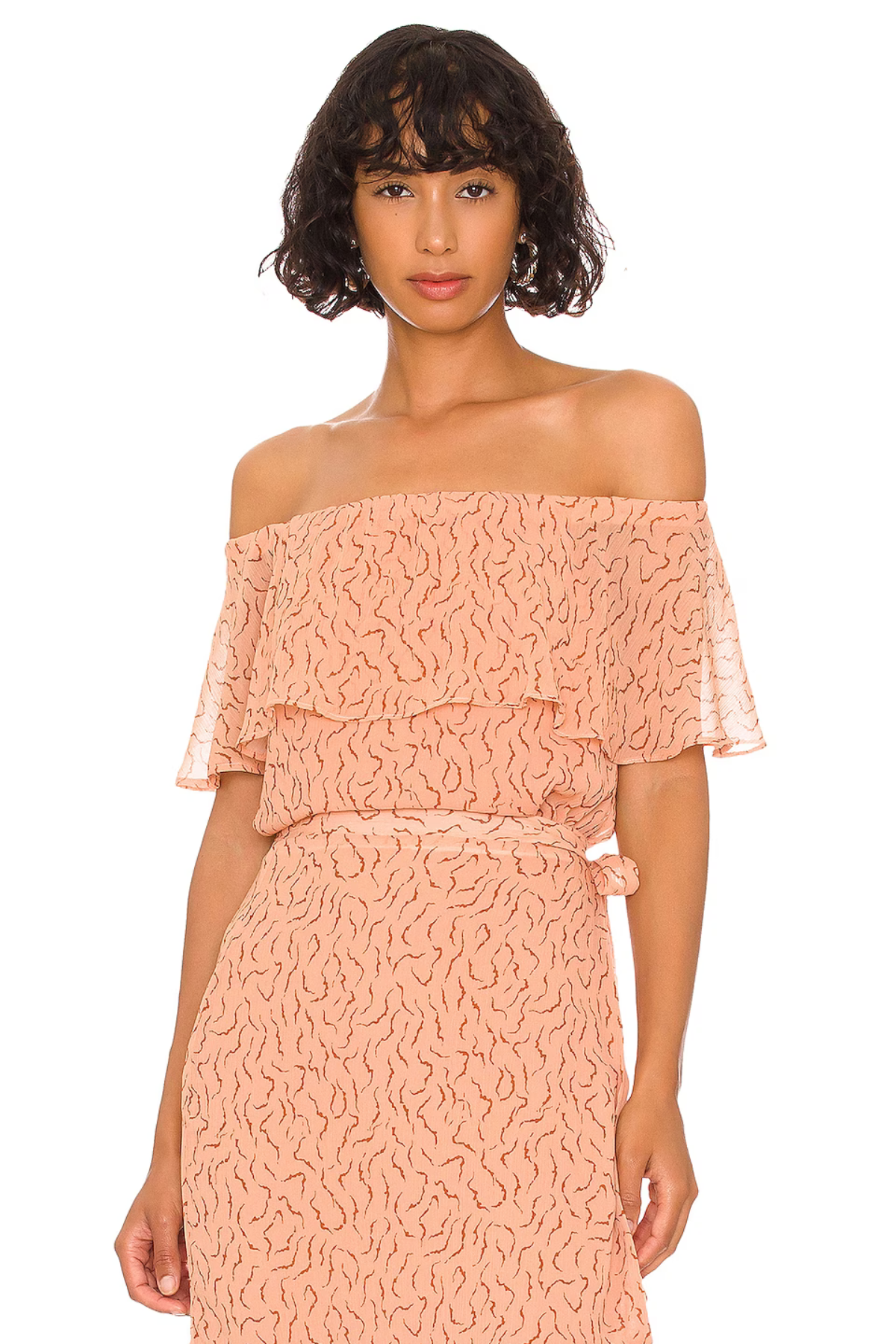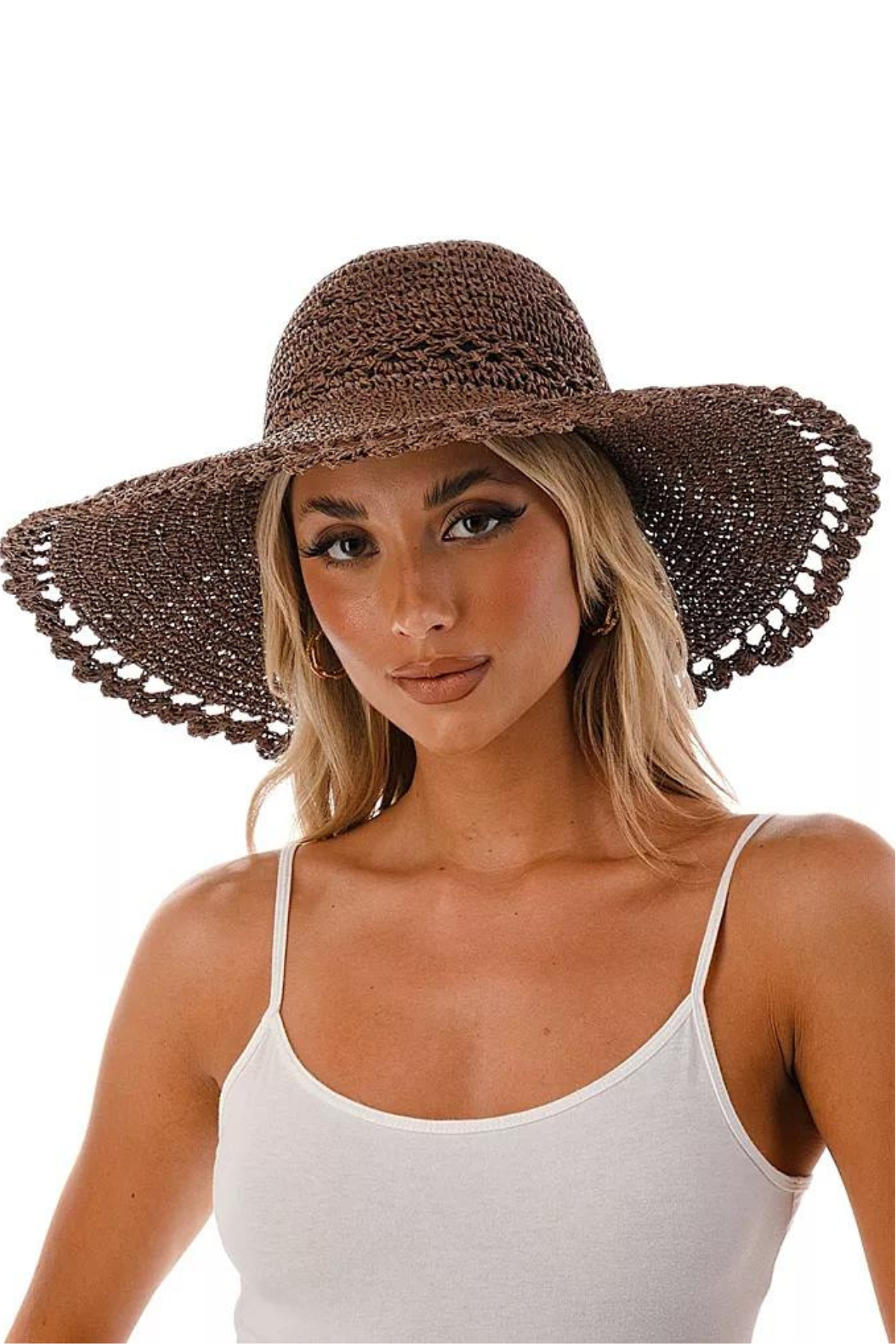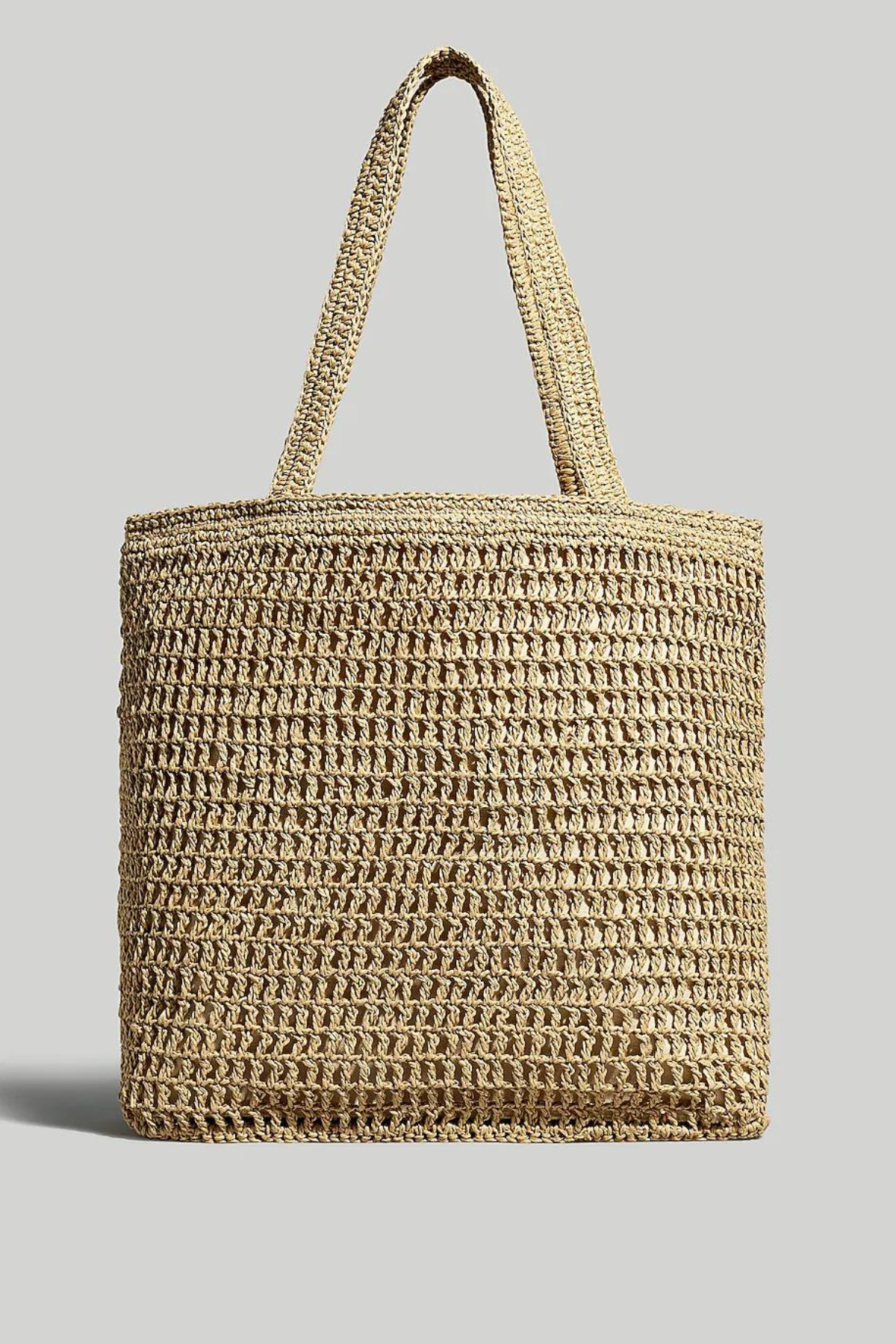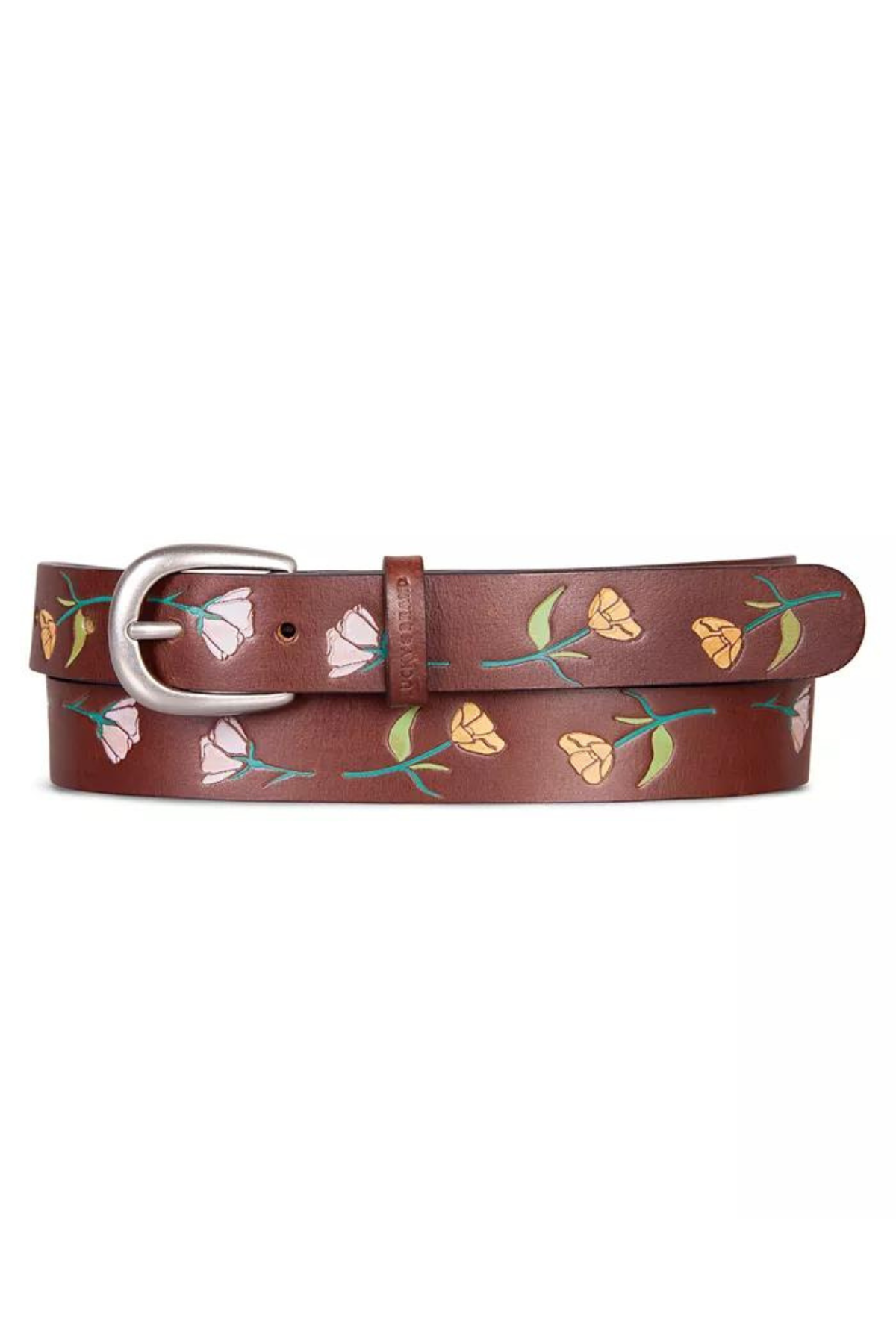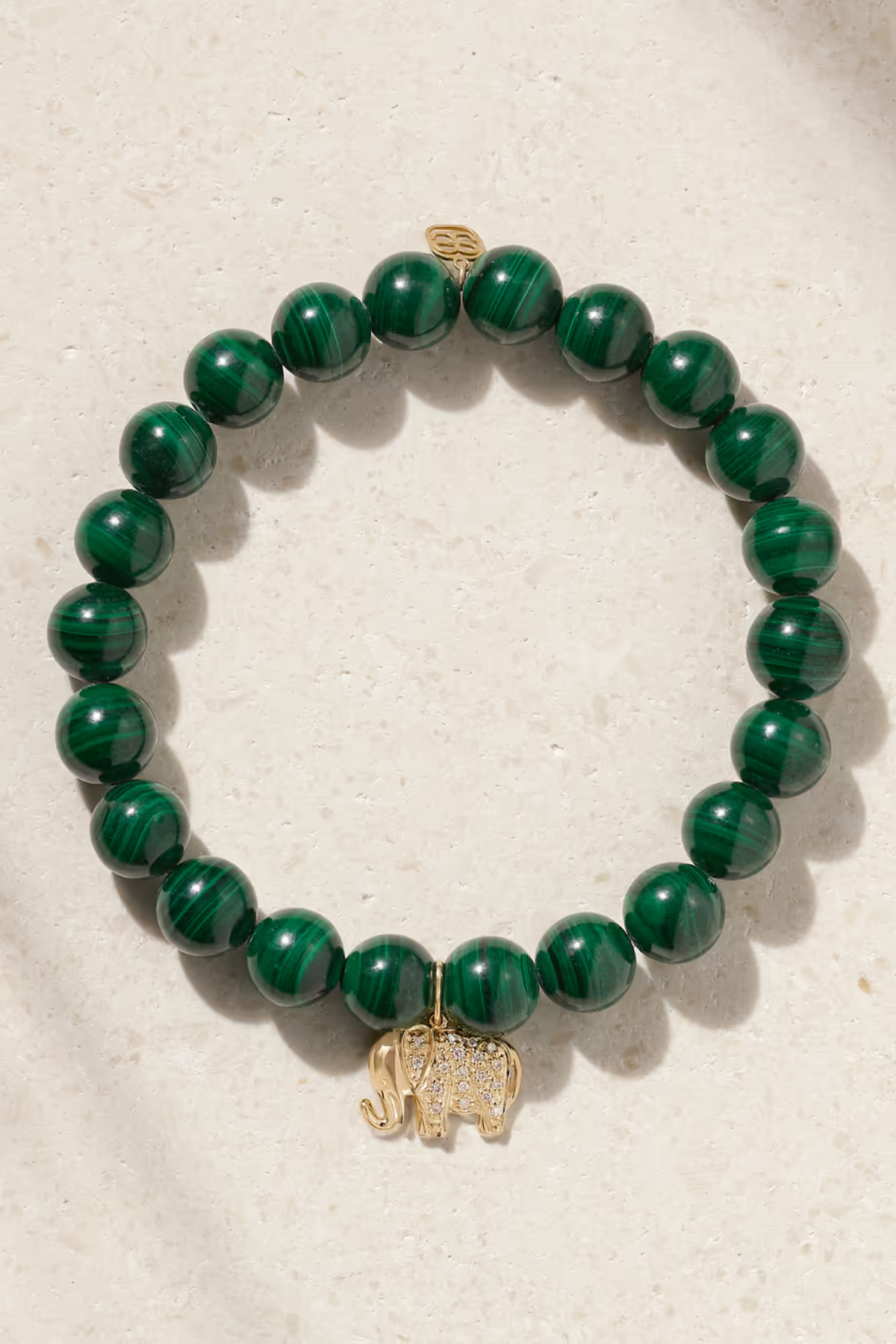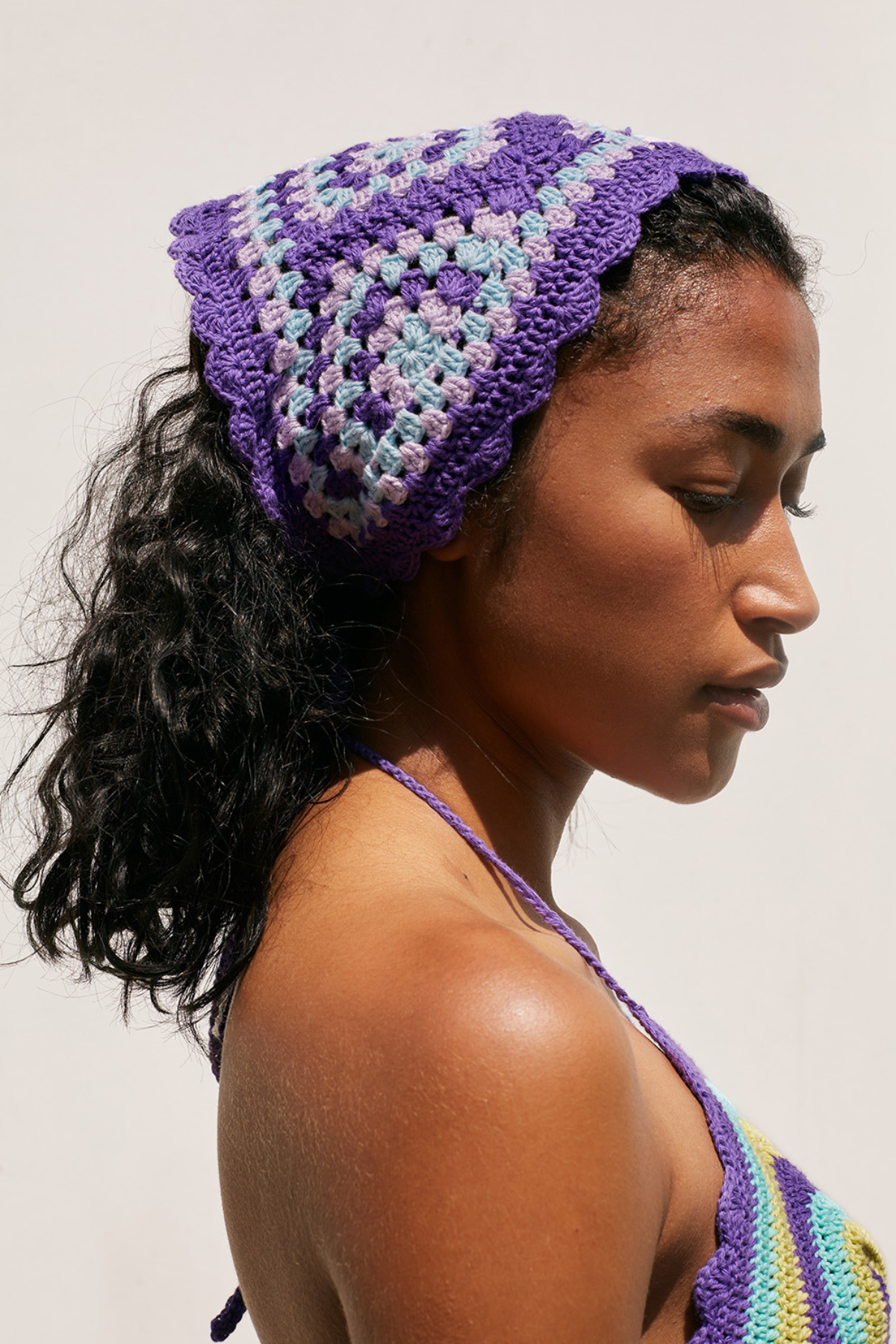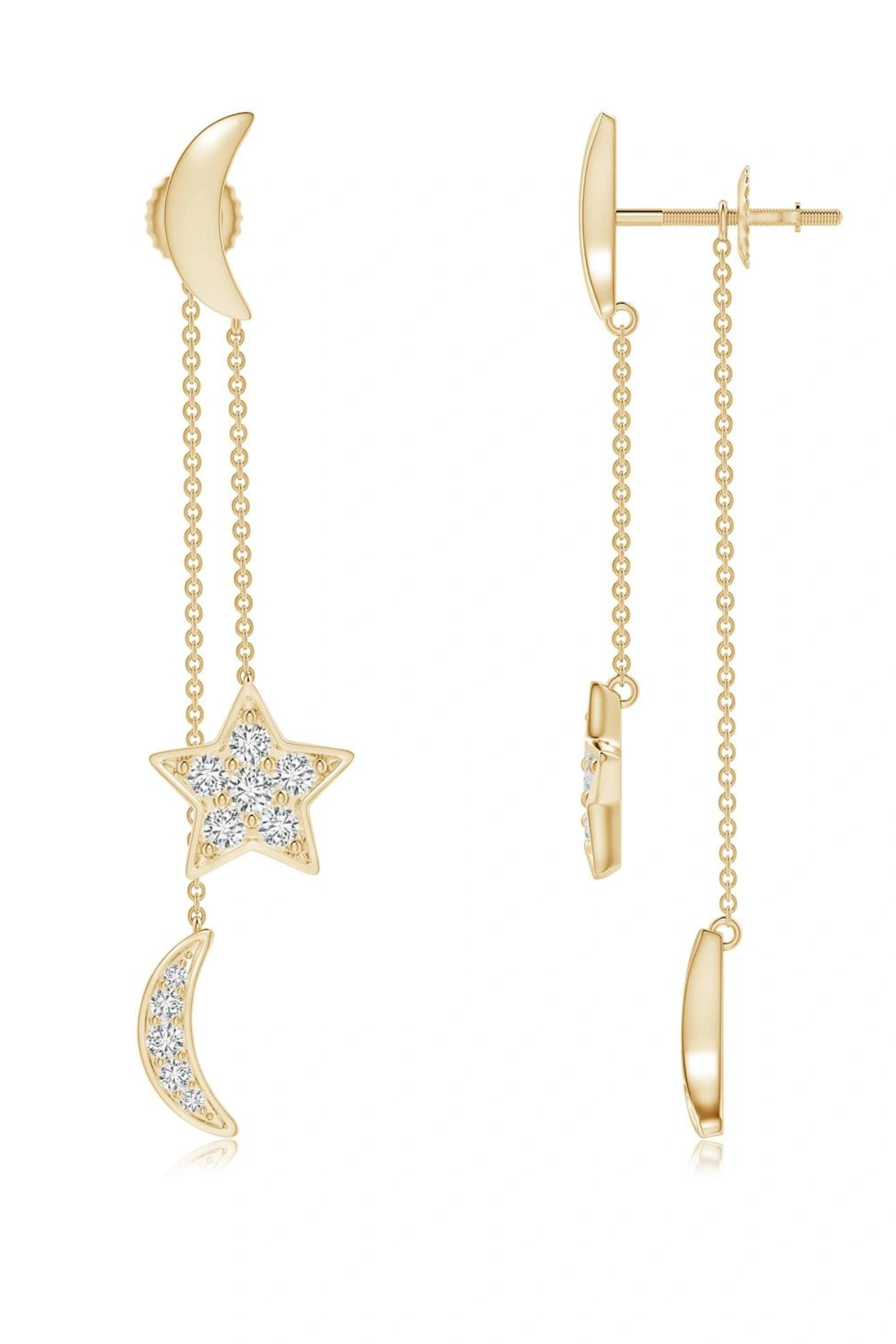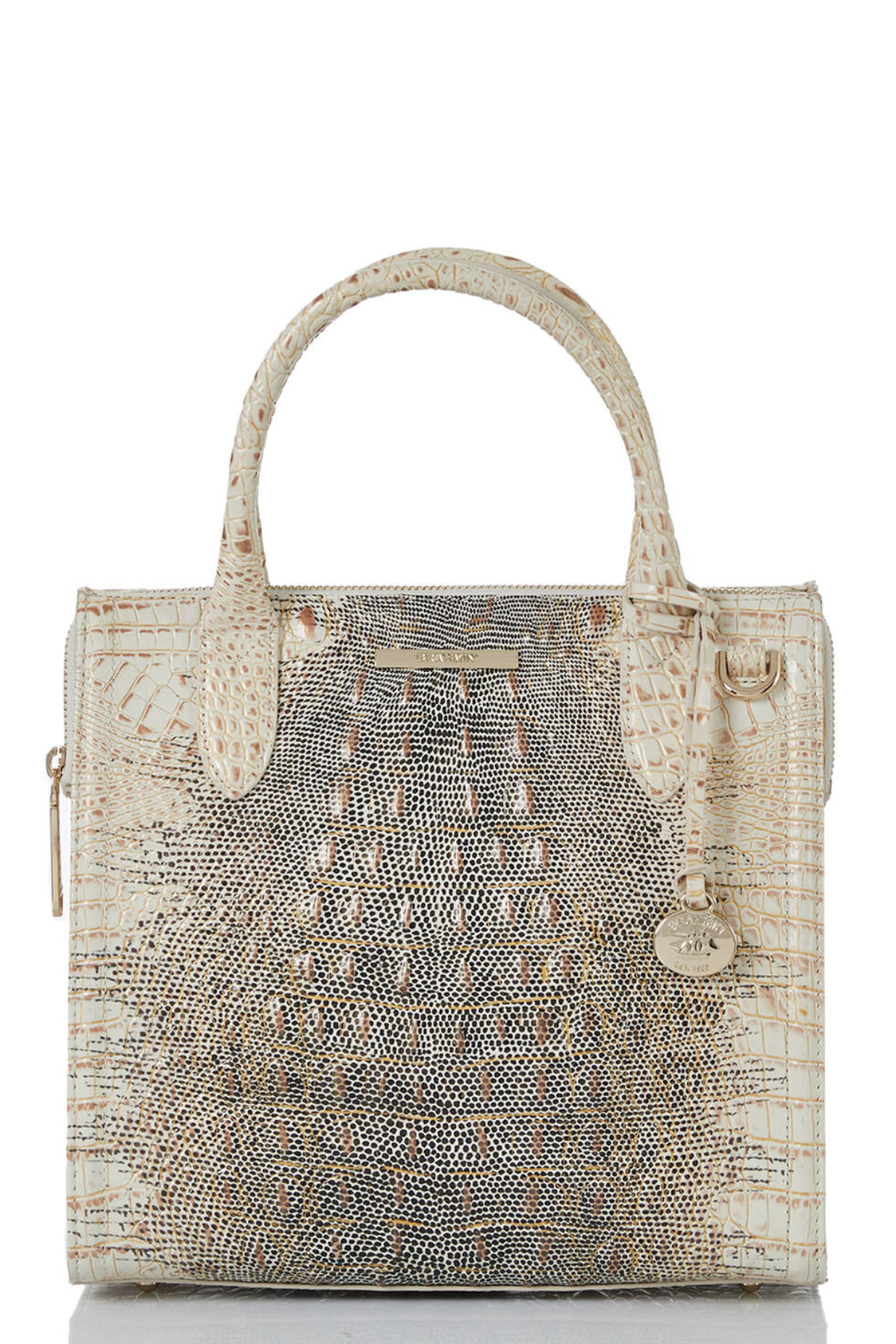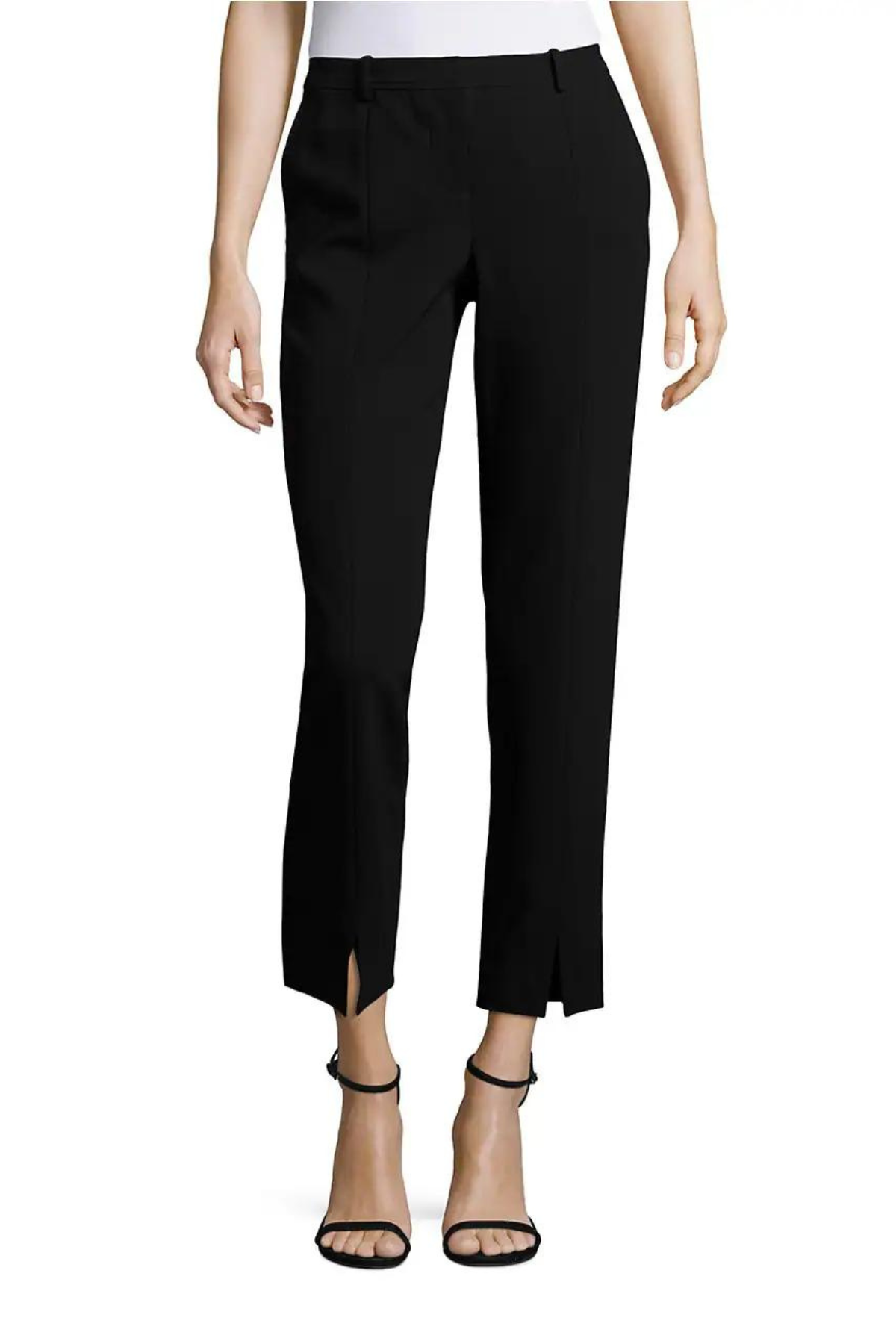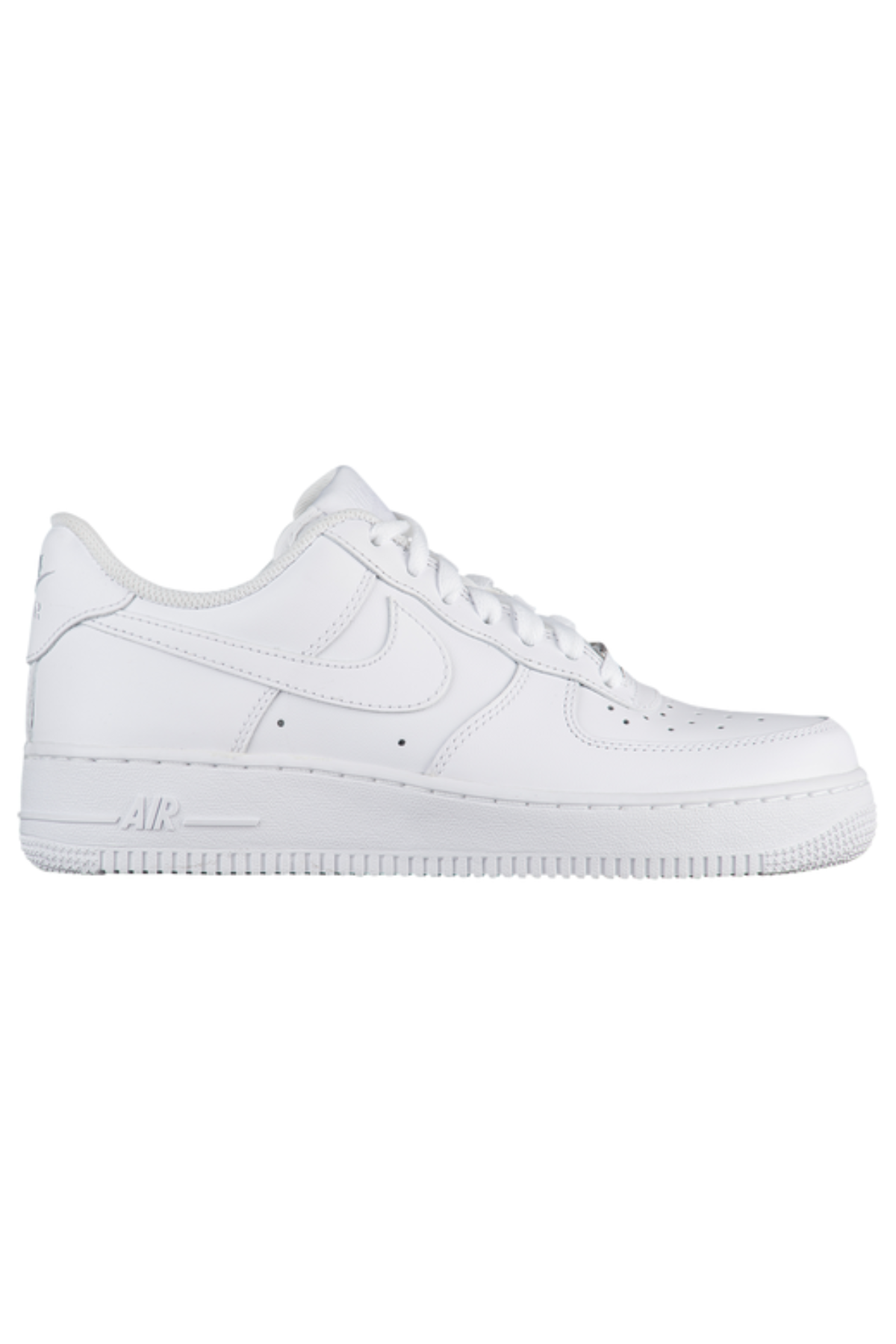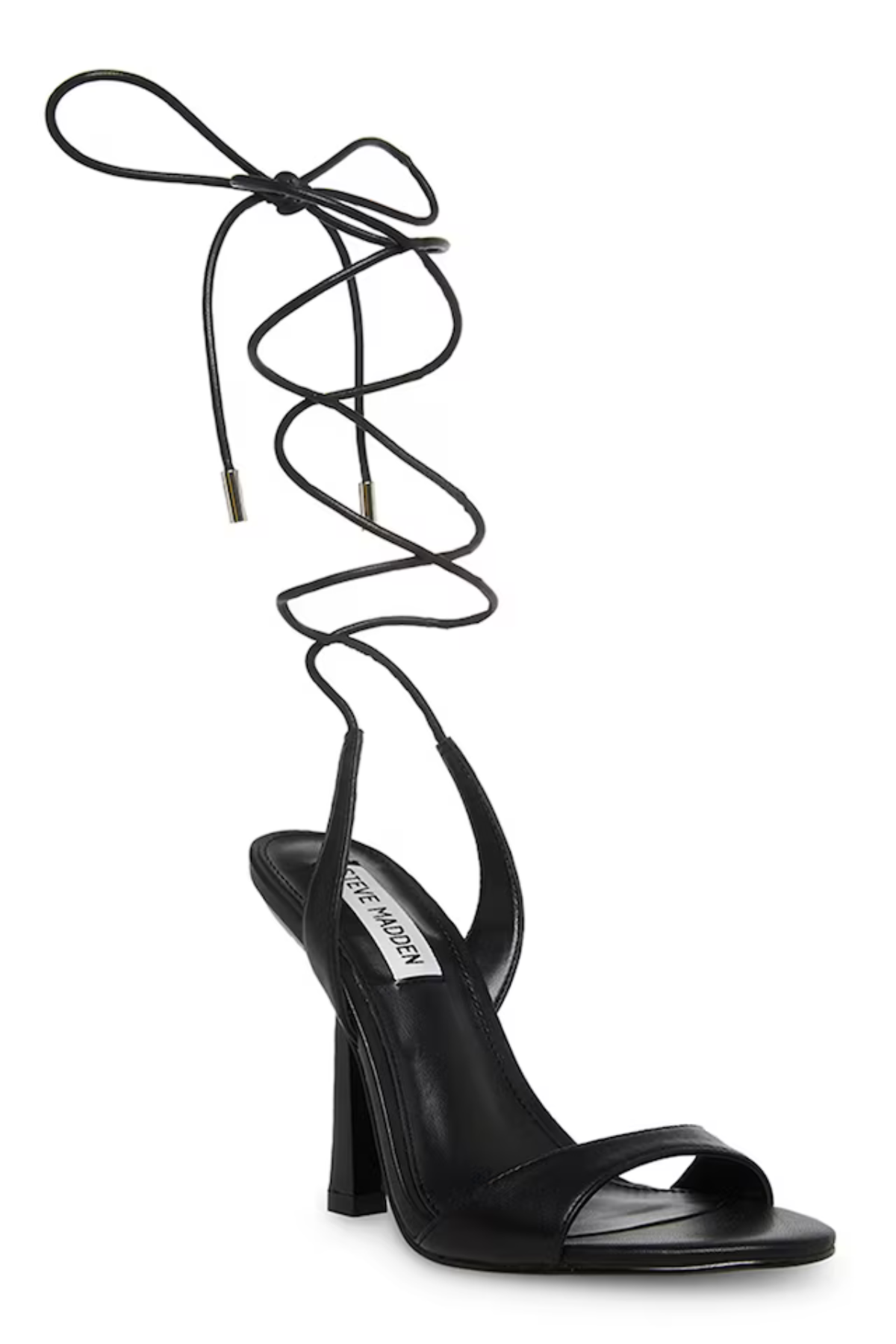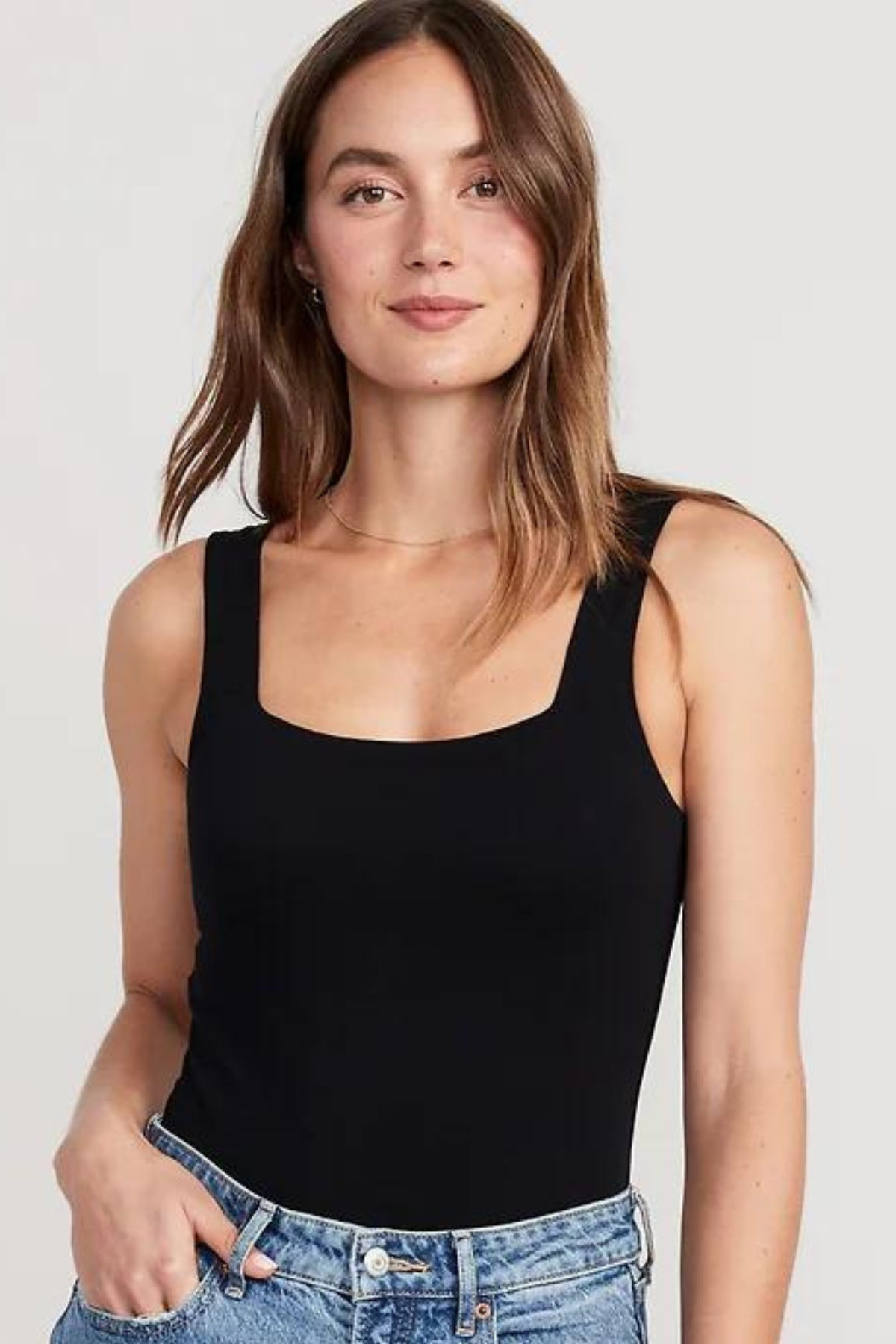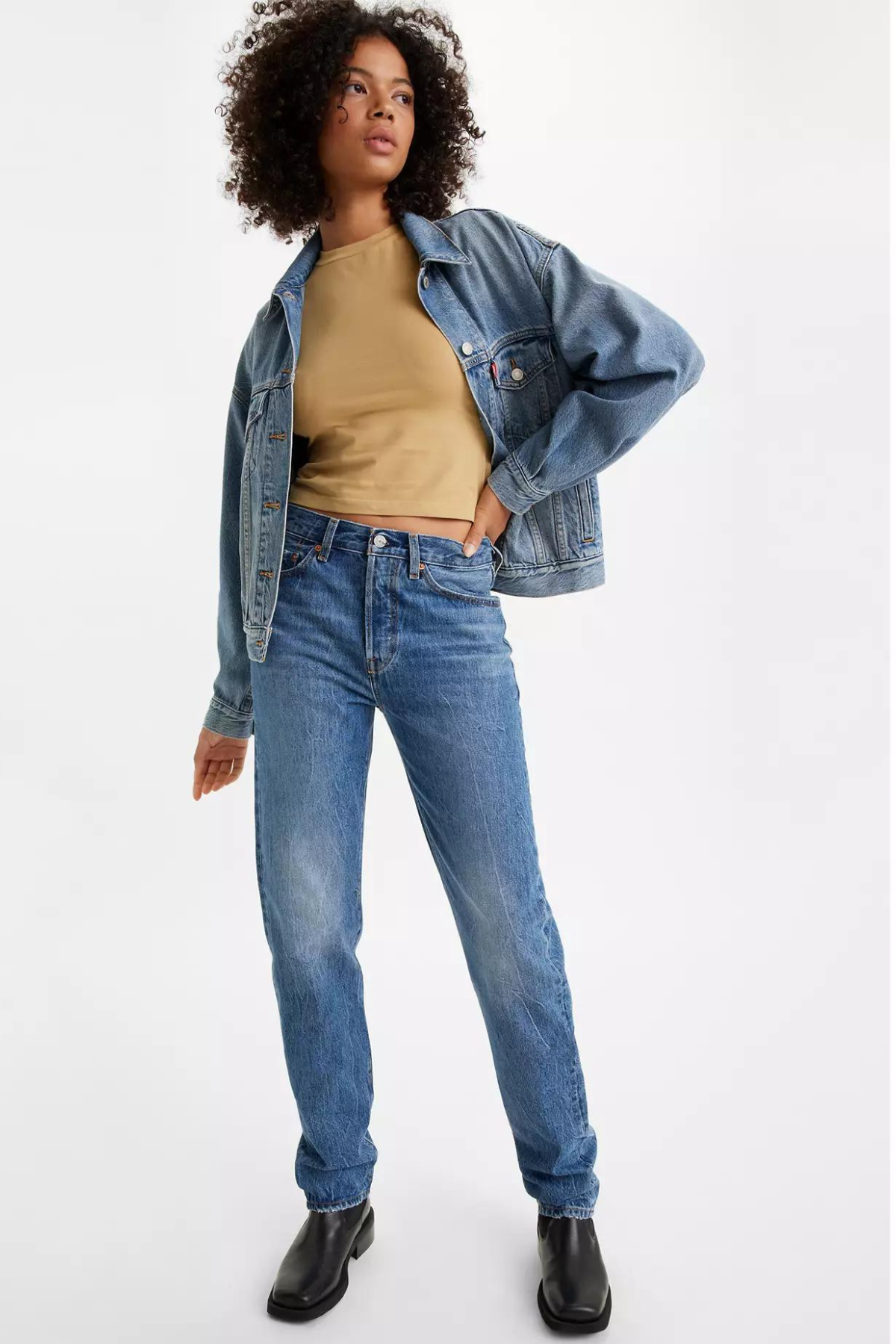Boho Fashion: Why This Free-Spirited Trend Keeps Coming Back
Year after year, this style just doesn't quit.
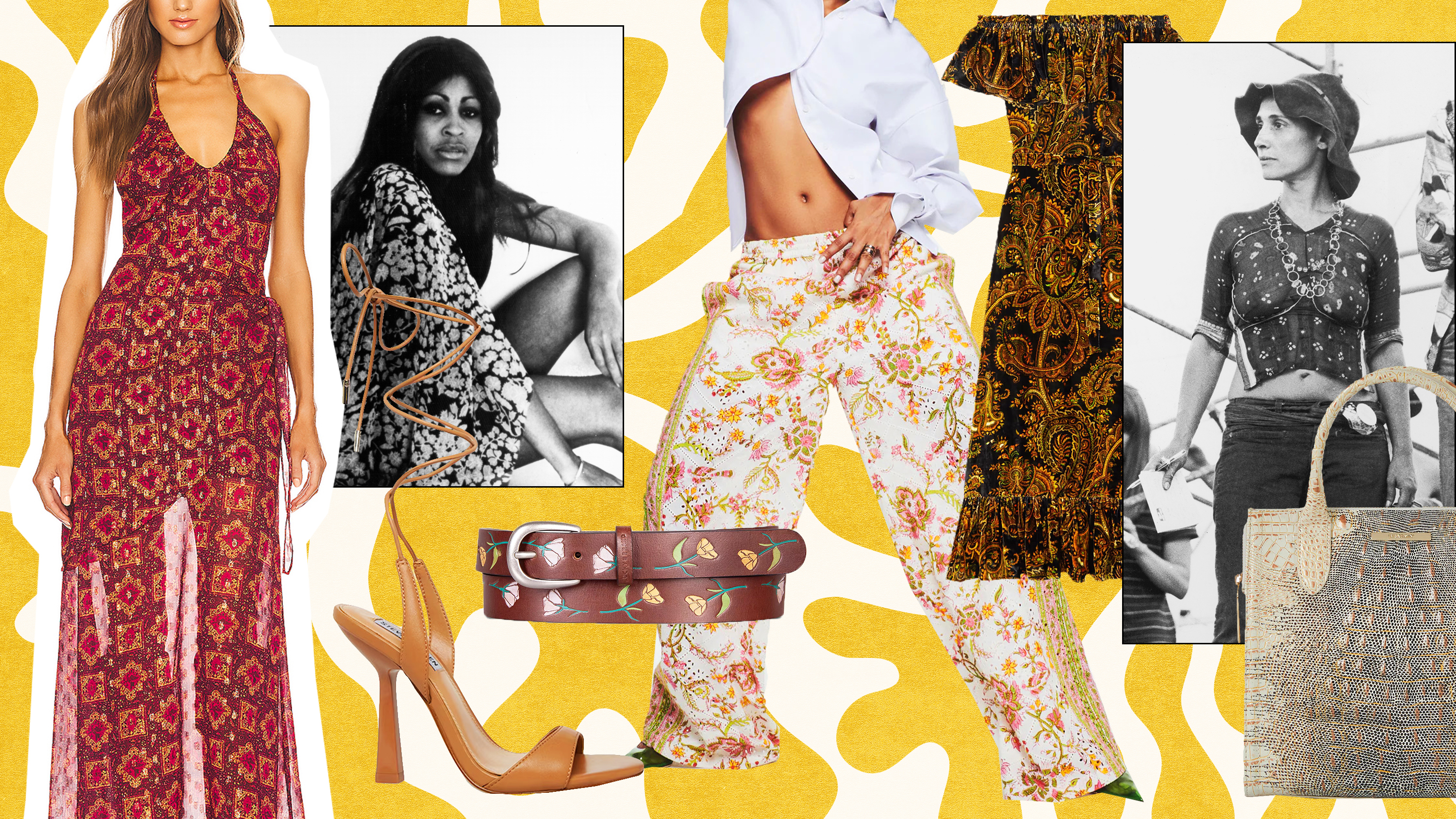
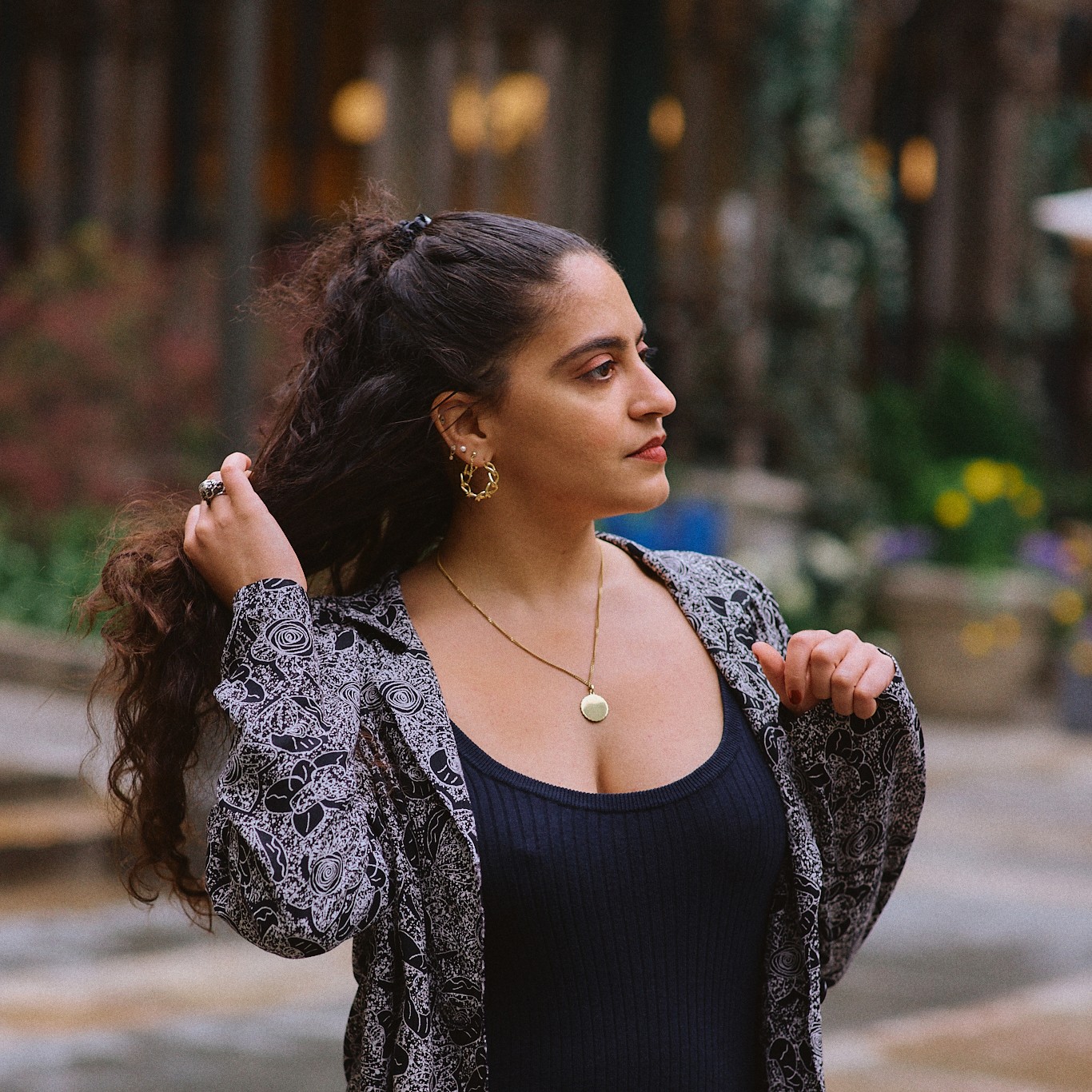
Spring and summer fashion has always been rife with floral patterns, wide-brim straw hats, loose silhouettes, and long, tiered maxi dresses and skirts. These styles are brought forth by the nature of the season: When it's hot outside, you'll opt for shade from the sun and for light, airy fabrics, while the sight of blossoming flowers inspires one to don prints that mirror the landscape. However, every few years, these styles take up even more space than usual on runways, magazine pages, social media posts, and fashion mood boards, leading experts to signal the return of the boho trend.
This year, the trend was kickstarted by Daisy Jones and the Six, the limited series based on Taylor Jenkins Reid's bestselling novel about a fictional band from the 1970s. While the show's plot and music, of course, took center stage, its fashion also become a point of universal obsession, fueled by lead actress Riley Keogh's highly publicized partnership with famously boho brand Free People.
But what are the origins of the boho trend, and where did it get its name?
The History of the Boho Trend
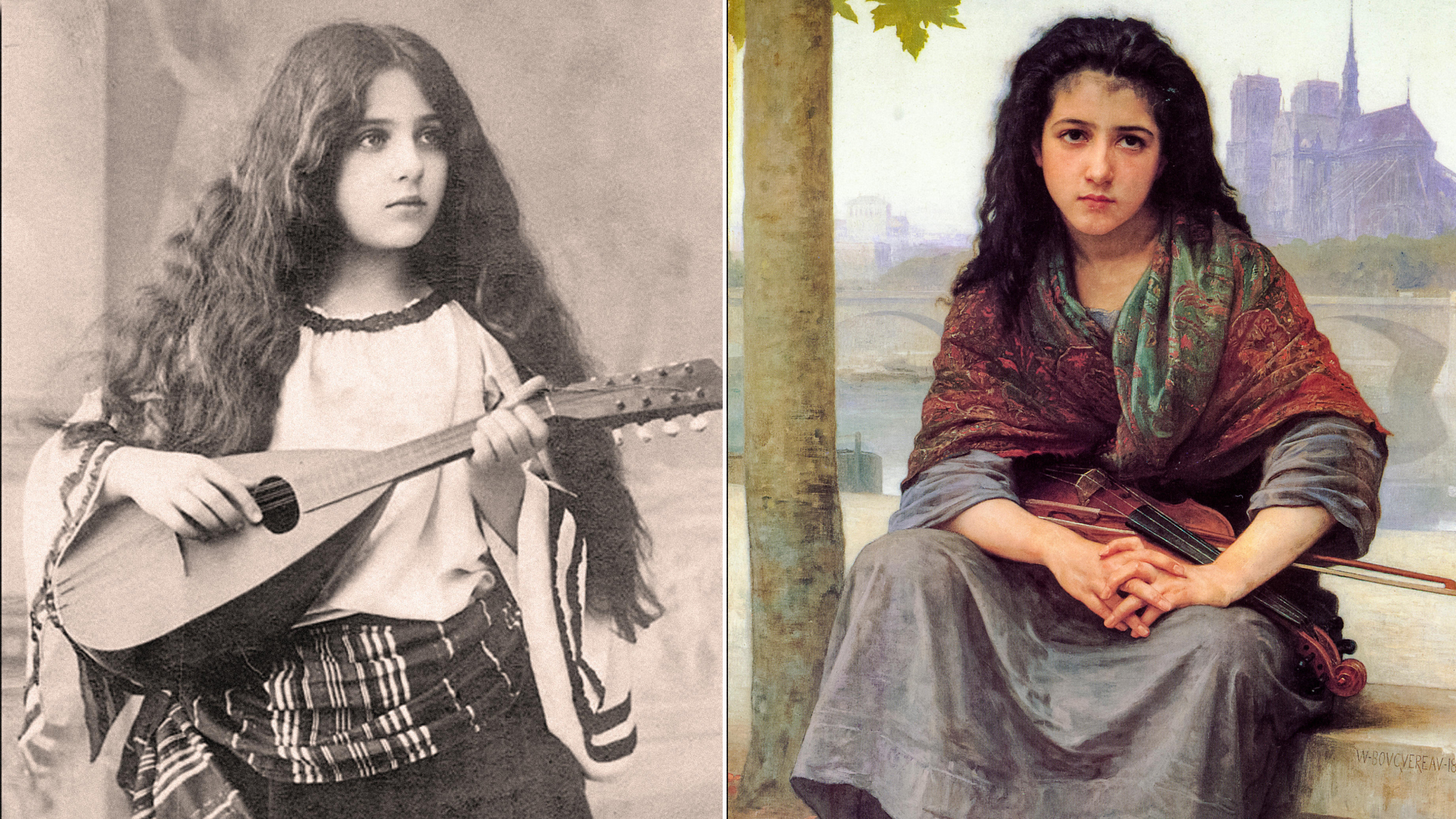
Young Bohemian women, 1800s.
Boho is short for bohemian, a term derived from the French bohémien, which originally referred to the nomadic people believed to have come from Bohemia (now part of the Czech Republic). In practice, bohemian soon came to refer to all nomadic peoples, including the Romani, and eventually evolved to include free-spirited artistic populations. This particularly applied to those living in Paris' Latin Quarter during the mid to late 1800s, a community immortalized in Henri Murger's Scenes of Bohemian Life, which inspired Giacomo Puccini's opera La Bohème and, more recently, Jonathan Larson's groundbreaking musical RENT.
As bohemianism became associated with creativity, free-spiritedness, and a nomadic lifestyle, it also brought to mind a certain fashion aesthetic: eclecticism, patchwork quilting, and long, flowing pieces. This look was adopted by the American hippie movement of the 1960s and 1970s, whose adherents added East Asian, Southeast Asian, and Middle Eastern inspired elements to boho fashion, such as elephant patterns, harem pants, tie dye, and paisley.
Nandita Raipurani, co-founder of boho brand Hemant and Nandita, acknowledges boho style's nomadic origins and summarizes, "Bohemian dressing has since evolved into a modern dressing movement where eclectic, flowing ensembles come to life with ease."
And this ethos, she says, is easy to incorporate into everyday dressing. "Perfect for everyday and festival dressing alike, a bohemian way of life keeps things simple—attention to detail and craftsmanship at the forefront," she says—a quality that boho dressing shares with other anti-trend trends like quiet luxury.
Stay In The Know
Get exclusive access to fashion and beauty trends, hot-off-the-press celebrity news, and more.
Below, the defining characteristics of boho fashion, so you can indulge in the trend that keeps coming back.
Airy Boho Silhouettes
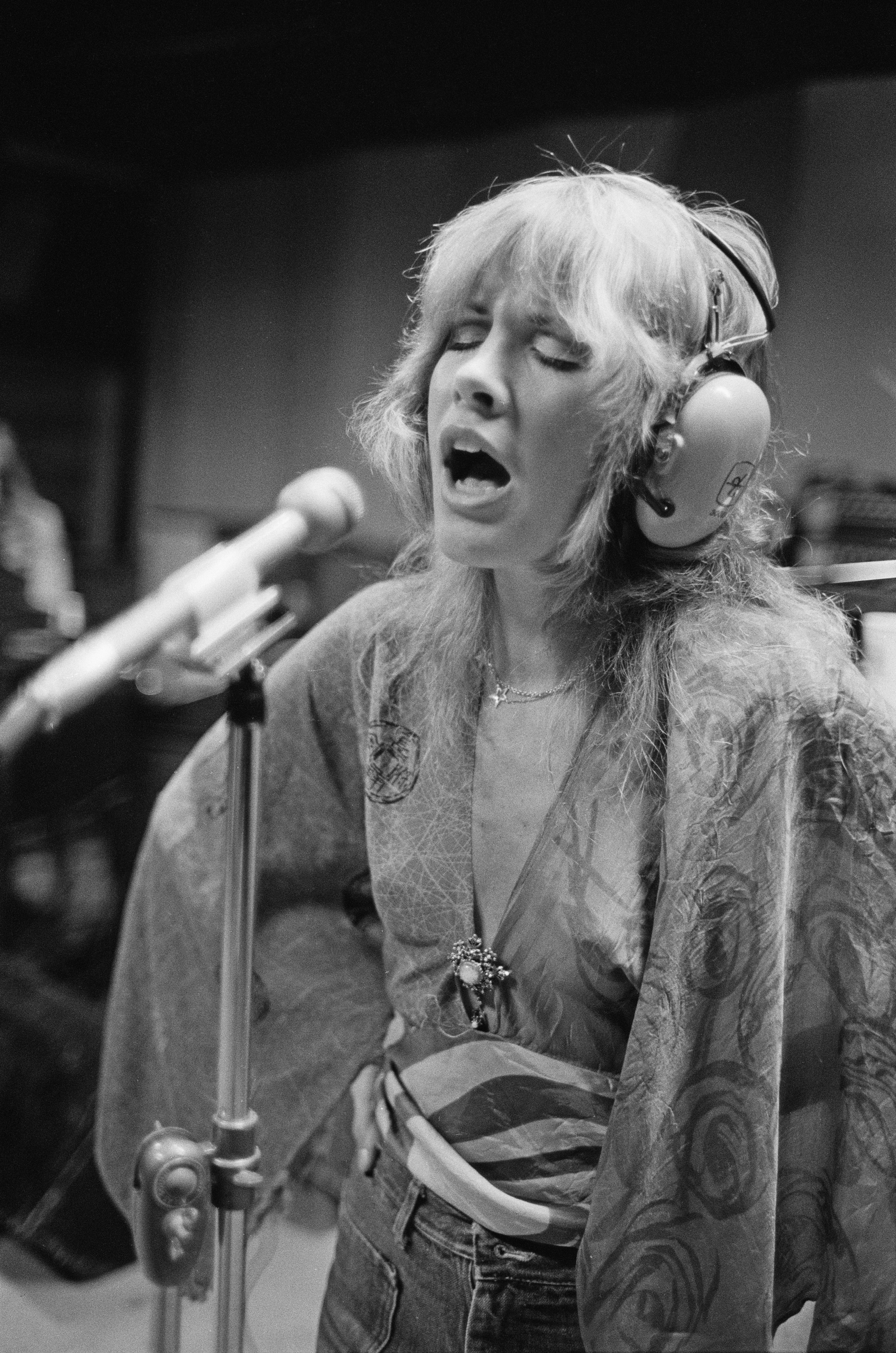
Stevie Nicks in the studio, 1975.
"When I think of boho fashion, my mind goes directly to relaxed, easy-to-wear silhouettes," explains Raipurani. "Embodying the free-spirited mindset, designs take the form of the wearer, embracing an unconventional yet feminine approach to style." Think: soft, comfortable pieces that can be worn loose or can be rendered form-fitting with a belt or with tie-back detailing. Bohemian fashion tends not to be tight all-over (or at all), and more frequently cascades down one's body—a quality that's perfect for staying cool in the heat.
Classic Boho Patterns
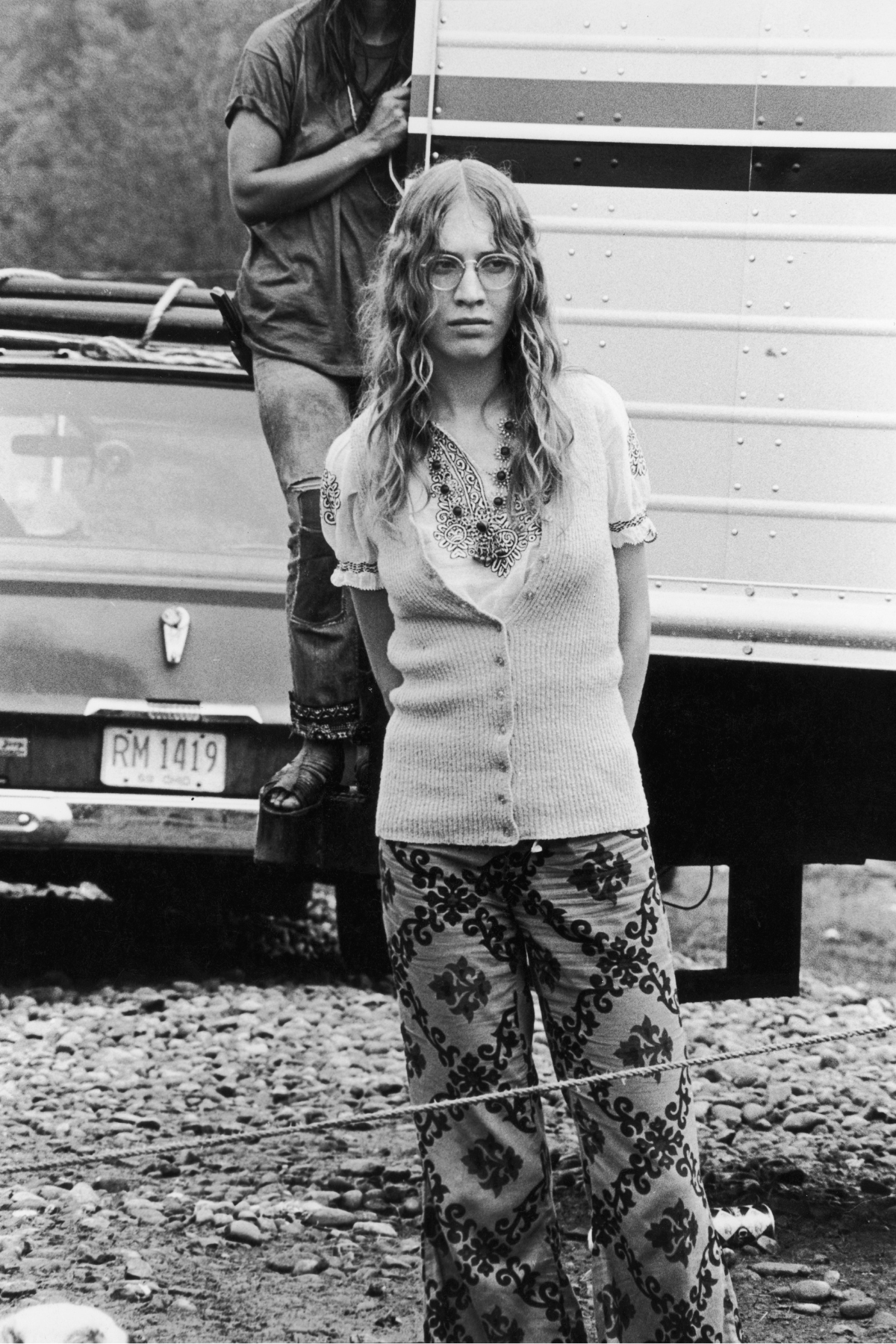
A woman styles patterned pants with a button-down tee at Woodstock, 1969.
"An ample use of bold florals and natural prints are reminiscent of the boho aesthetic," says Raipurani. "Think: motifs that are inspired by the earth around us." This includes florals, leaf prints, and paisley, often printed over and over on the fabric itself or even embroidered onto it. Boho fashion can also incorporate patchwork-style patterns—a quality that nods to the trend's starving artist and hippie heritage.
Subtle Boho Details
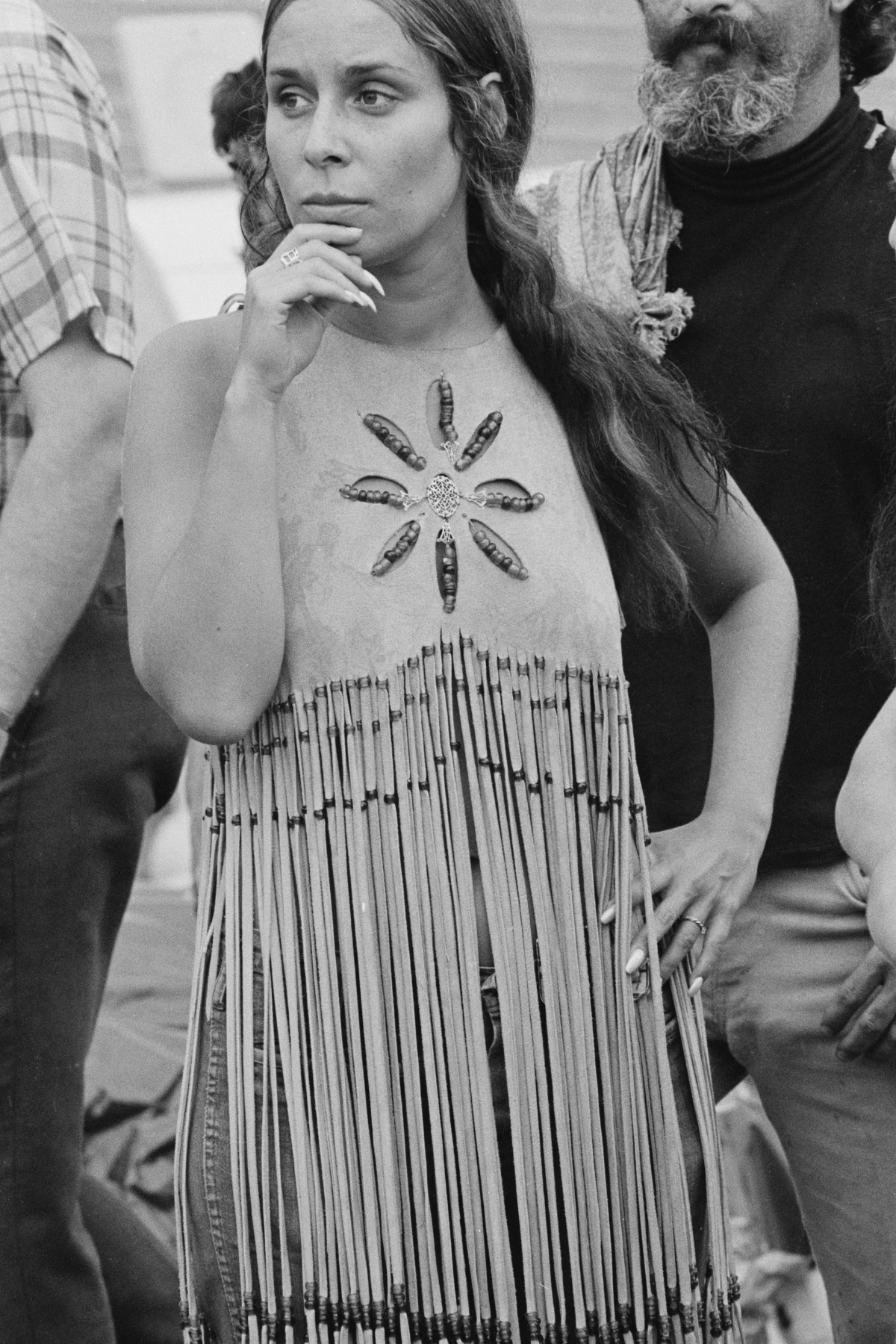
A woman flaunts a fringe top at Woodstock, 1969.
As with all fashion, the devil (or in this case, the bohemian) is truly in the details. If you're not ready to commit to paisley, tie-dye, or elephant print, consider the subtler, more universally wearable aspects of the trend. Raipurani reminds us that boho fashion is "typically accented by light ruffling, fringe, and rope details," noting that "breezy silhouettes are brought to life by handcrafted details and punchy pops of color."
Unique Boho Accessories
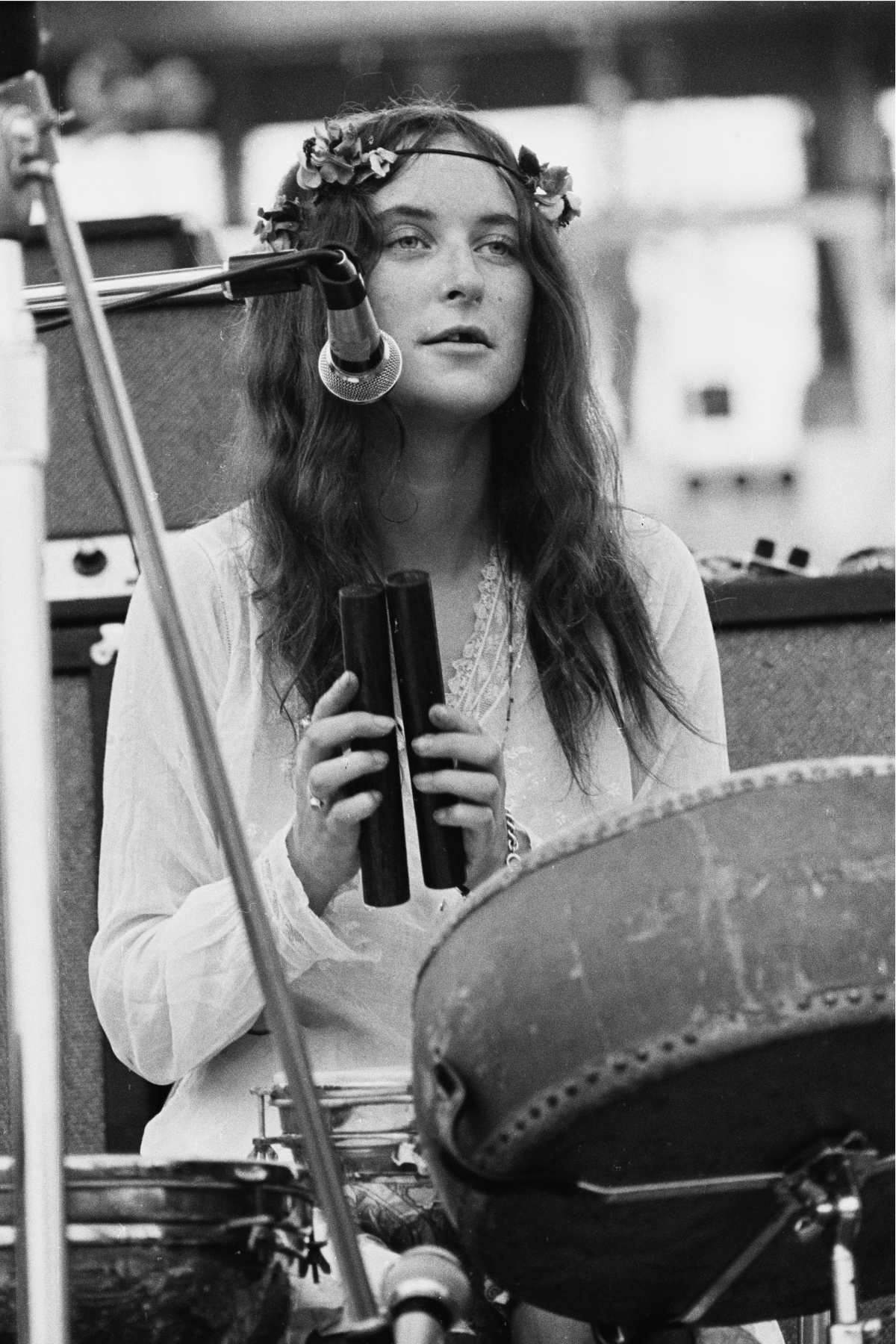
British singer-songwriter Licorice McKechnie at Woodstock, 1969.
The boho trend can be worn all year round, but many of its elements—especially its accessories—shine brightest in the summer. According to Raipurani, boho fashion is "best accessorized with wide brim hats, straw totes, luxe leather belts, and stacks of beaded bracelets." These accessories can also be worn with other styles and trends, and are therefore excellent investment pieces that deserve a permanent spot in your capsule wardrobe.
Styling Boho Fashion
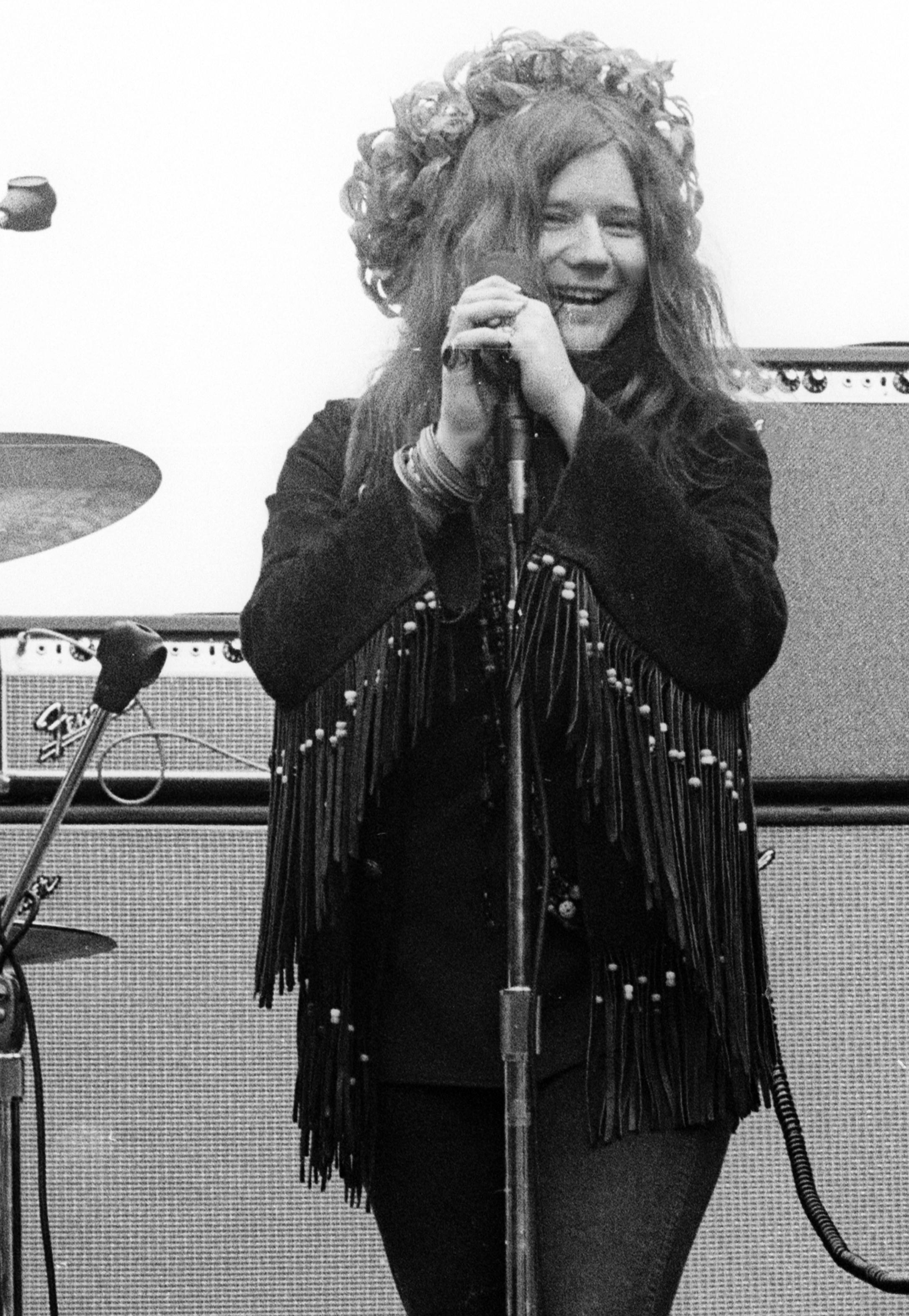
Janis Joplin performing in San Francisco, 1967.
Loving boho fashion doesn't necessarily involve dressing like you're headed to Woodstock. Raipurani reassures, "Boho pieces lend themselves to a variety of different styling options," noting that the bohemianism "represents a style that is unique to one’s personality—uninfluenced by traditional industry trends." In other words, the best way to be bohemian is simply to be yourself.
When styling your boho clothes, Raipurani suggests, "Dress them up with your favorite sneakers, or opt for a lace-up heel for a more elevated moment." You can also offset flowy silhouettes with more structured, boxy shapes, and colorful floral patterns with darker, solid shades.
Meet the Expert
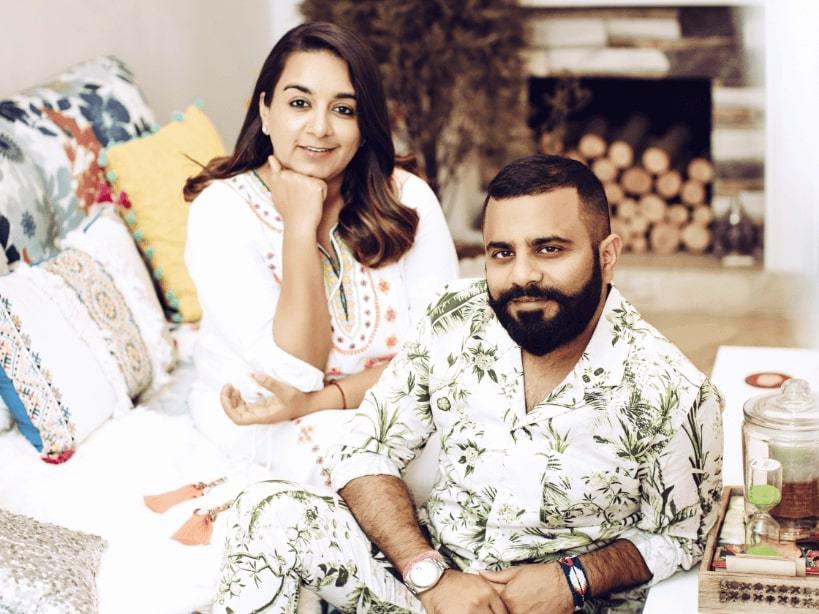
Nandita Raipurani co-founded resortwear brand Hemant & Nandita with her husband, Hemant Lalwani. Born and raised in India, Nandita attended the Northern India Institute of Fashion Technology, where she and Hemant began their creative journey. Inspired by international travel, Nandita is devoted to creating unique, premium bohemian fashion, and hopes to express her feminist beliefs through designs that fuse traditional Indian culture and modern style.

Gabrielle Ulubay is a Beauty Writer at Marie Claire. She has also written about sexual wellness, politics, culture, and fashion at Marie Claire and at publications including The New York Times, HuffPost Personal, Bustle, Alma, Muskrat Magazine, O'Bheal, and elsewhere. Her personal essay in The New York Times' Modern Love column kickstarted her professional writing career in 2018, and that piece has since been printed in the 2019 revised edition of the Modern Love book. Having studied history, international relations, and film, she has made films on politics and gender equity in addition to writing about cinema for Film Ireland, University College Cork, and on her personal blog, gabrielleulubay.medium.com. Before working with Marie Claire, Gabrielle worked in local government, higher education, and sales, and has resided in four countries and counting. She has worked extensively in the e-commerce and sales spaces since 2020, and spent two years at Drizly, where she developed an expertise in finding the best, highest quality goods and experiences money can buy.
Deeply political, she believes that skincare, haircare, and sexual wellness are central tenets to one's overall health and fights for them to be taken seriously, especially for people of color. She also loves studying makeup as a means of artistic expression, drawing on her experience as an artist in her analysis of beauty trends. She's based in New York City, where she can be found watching movies or running her art business when she isn't writing. Find her on Twitter at @GabrielleUlubay or on Instagram at @gabrielle.ulubay, or follow her art at @suburban.graffiti.art
-
 Tyla's Coachella Outfit Pairs Dolce & Gabbana With Pandora
Tyla's Coachella Outfit Pairs Dolce & Gabbana With PandoraThe singer wore a gold version of the crystal bra made famous by Aaliyah.
By Amy Mackelden Published
-
 How Kate Middleton Is Influencing George's Fashion Choices
How Kate Middleton Is Influencing George's Fashion ChoicesThe future king's smart blazer is straight out of Princess Kate's style playbook.
By Amy Mackelden Published
-
 King Charles "Couldn't" Meet Prince Harry During U.K. Visit
King Charles "Couldn't" Meet Prince Harry During U.K. Visit"It could actually bring down a court case."
By Amy Mackelden Published
